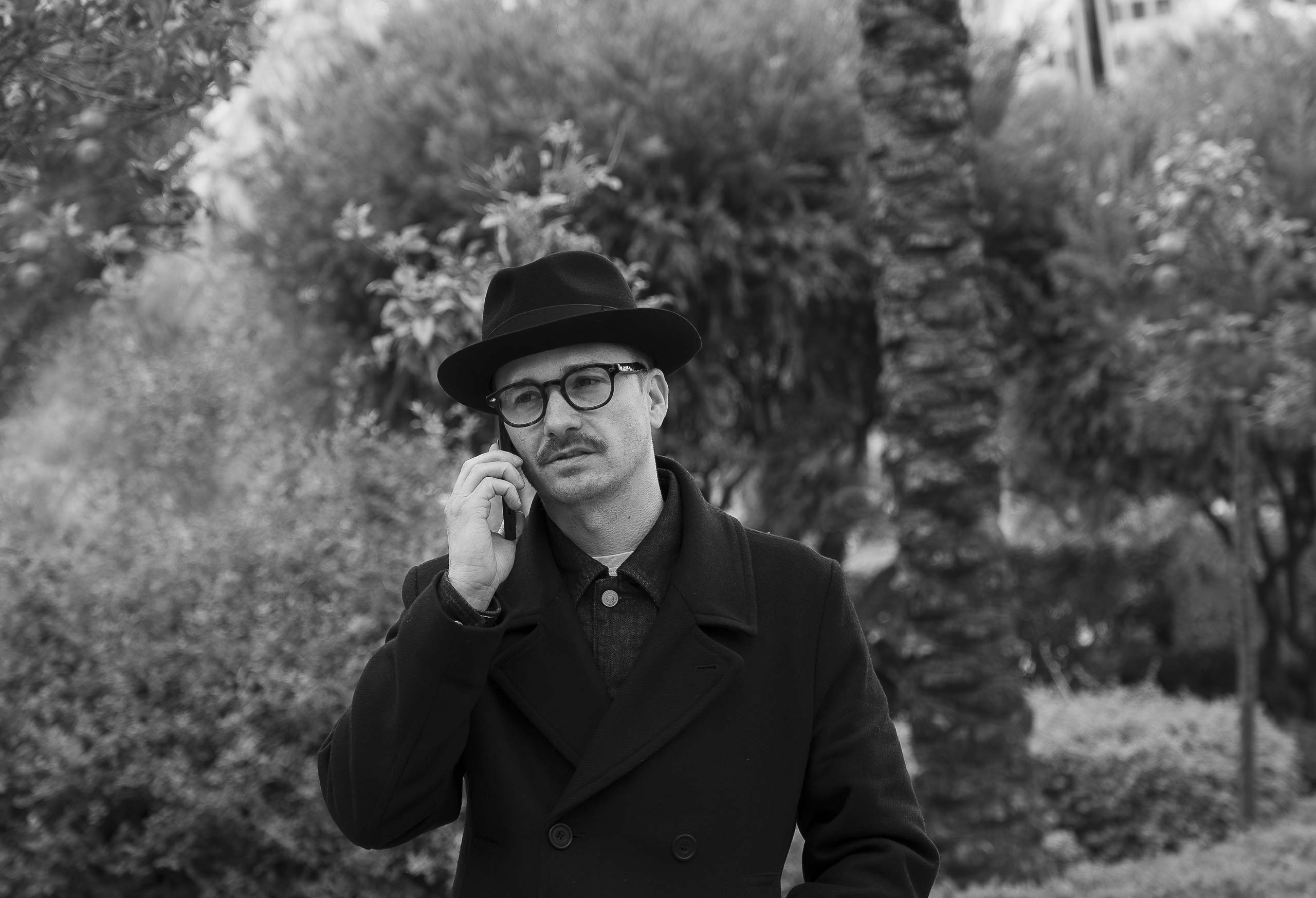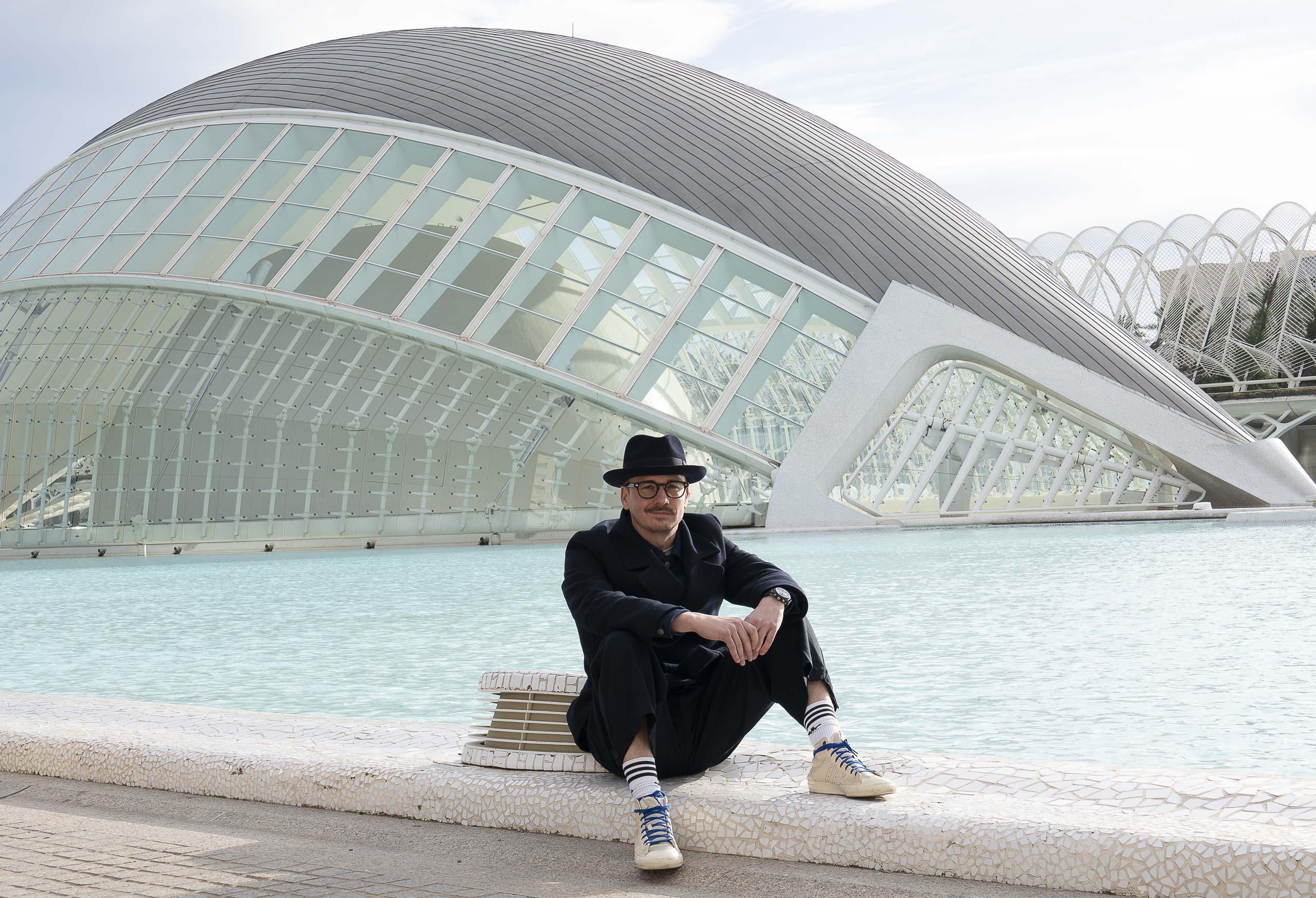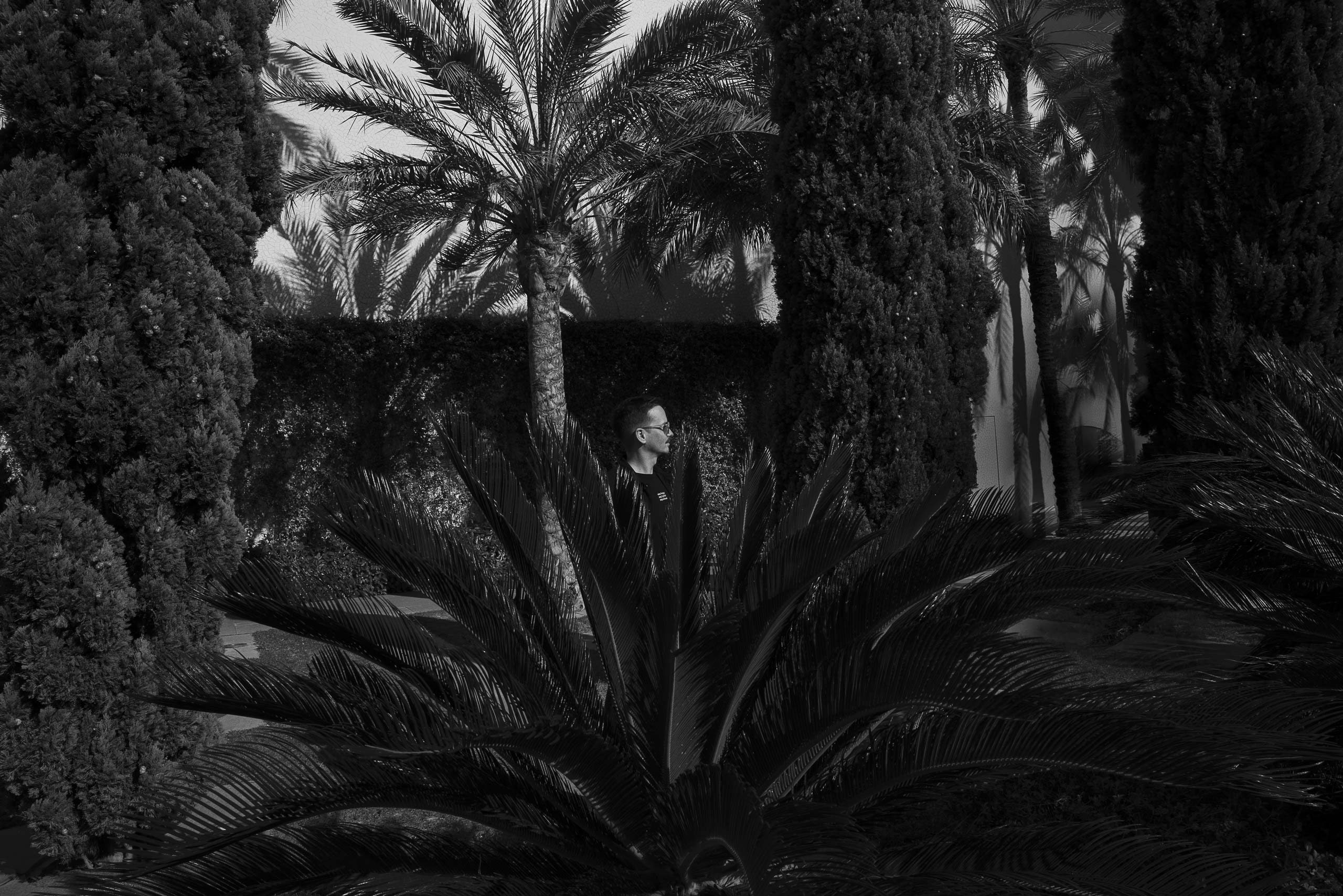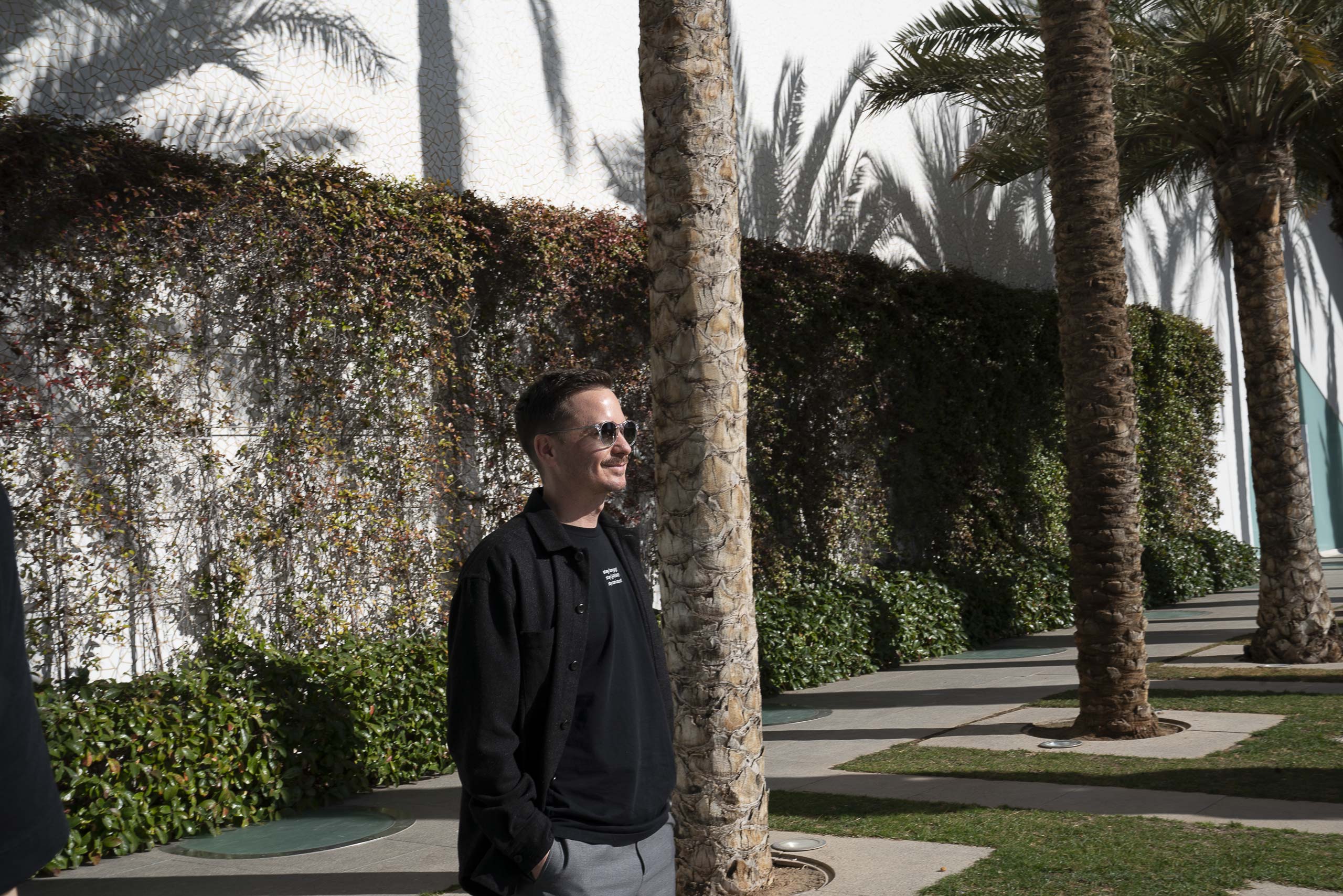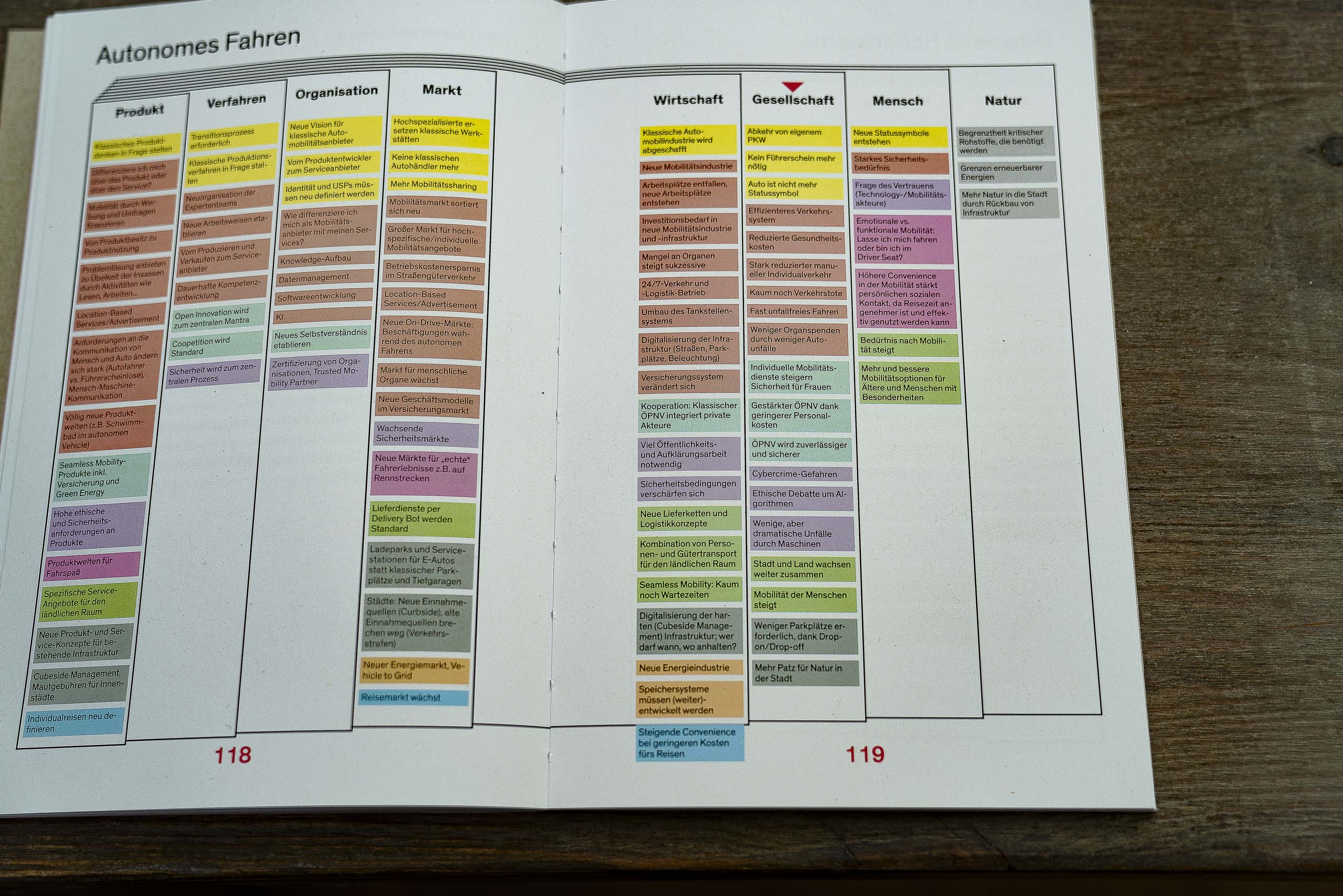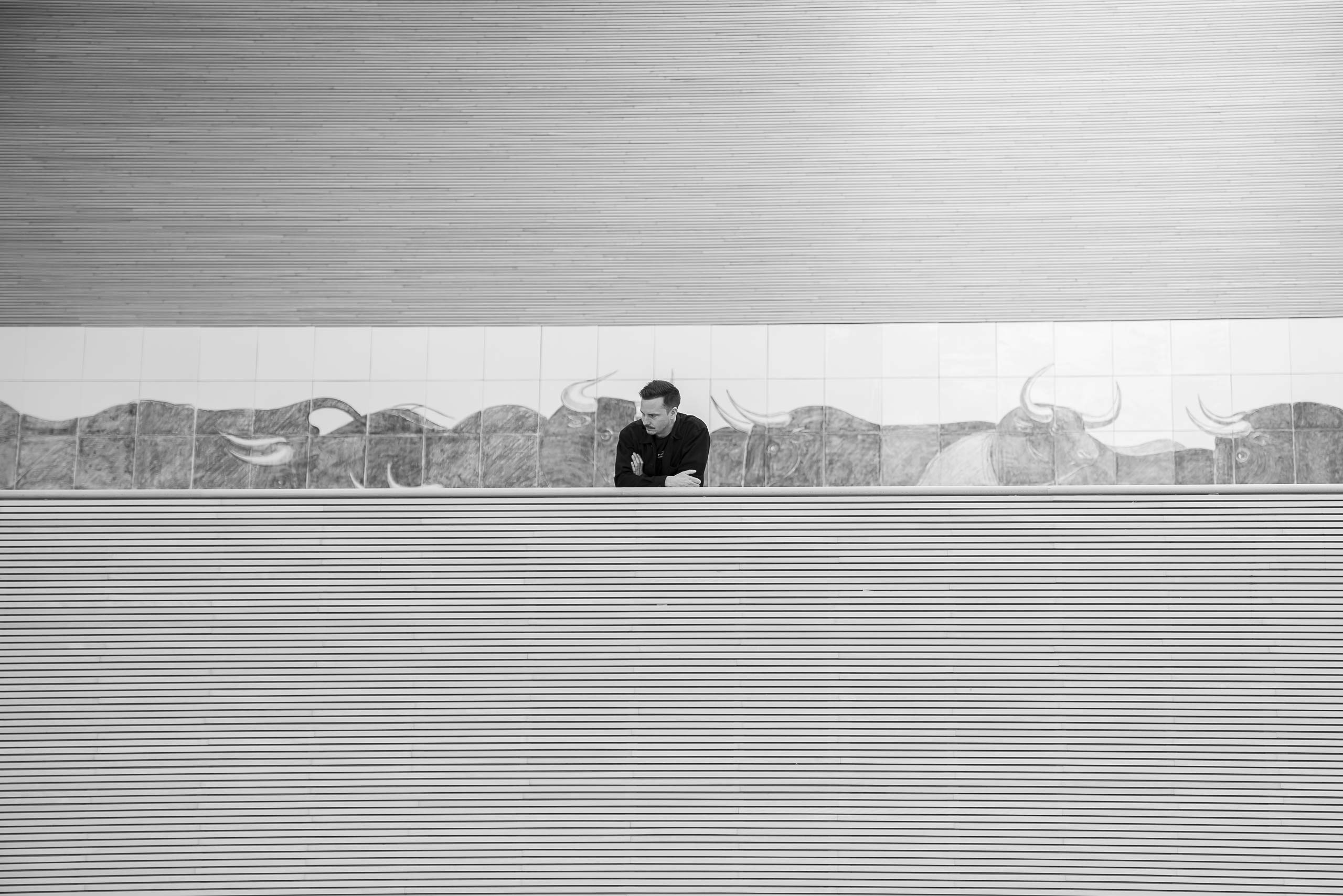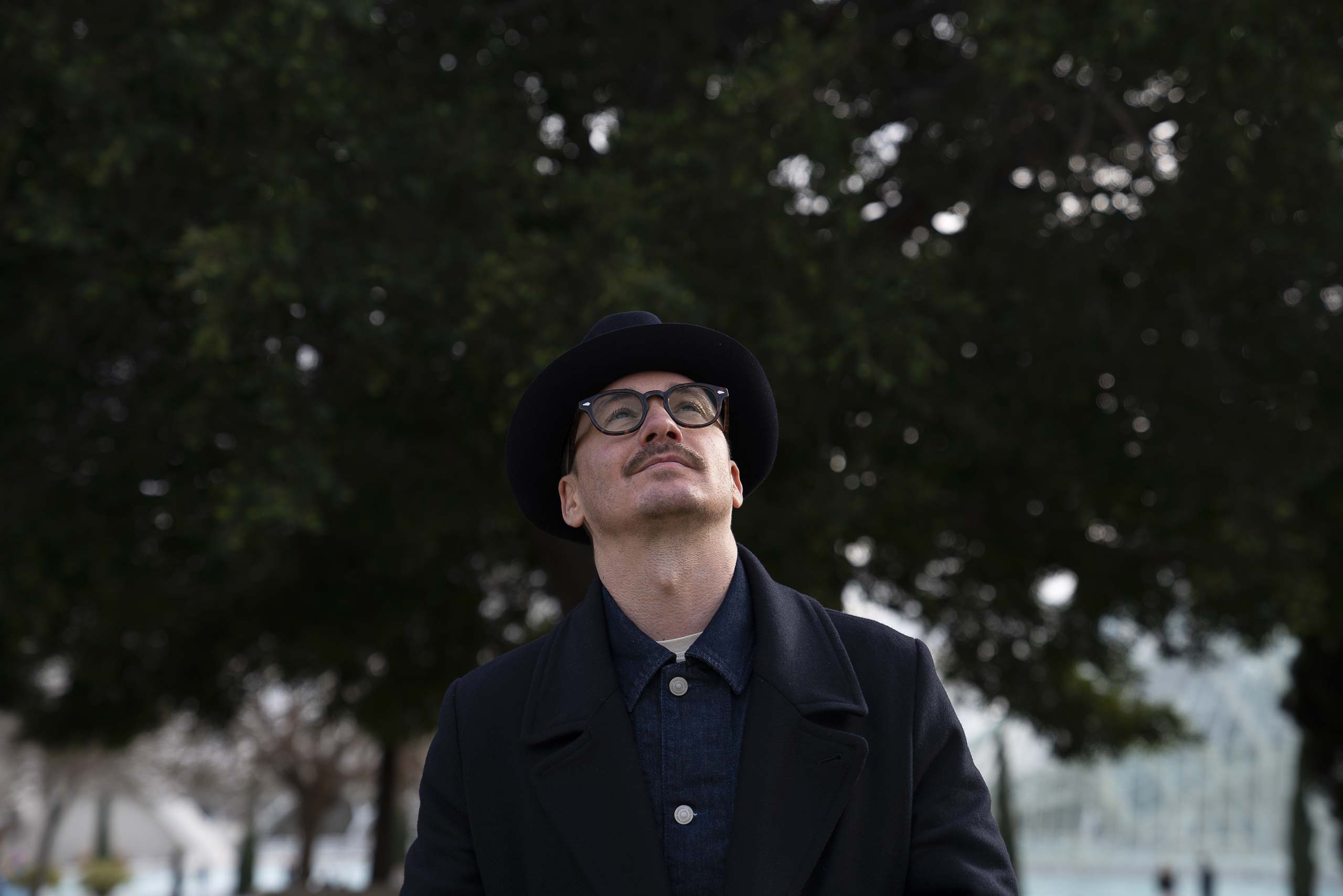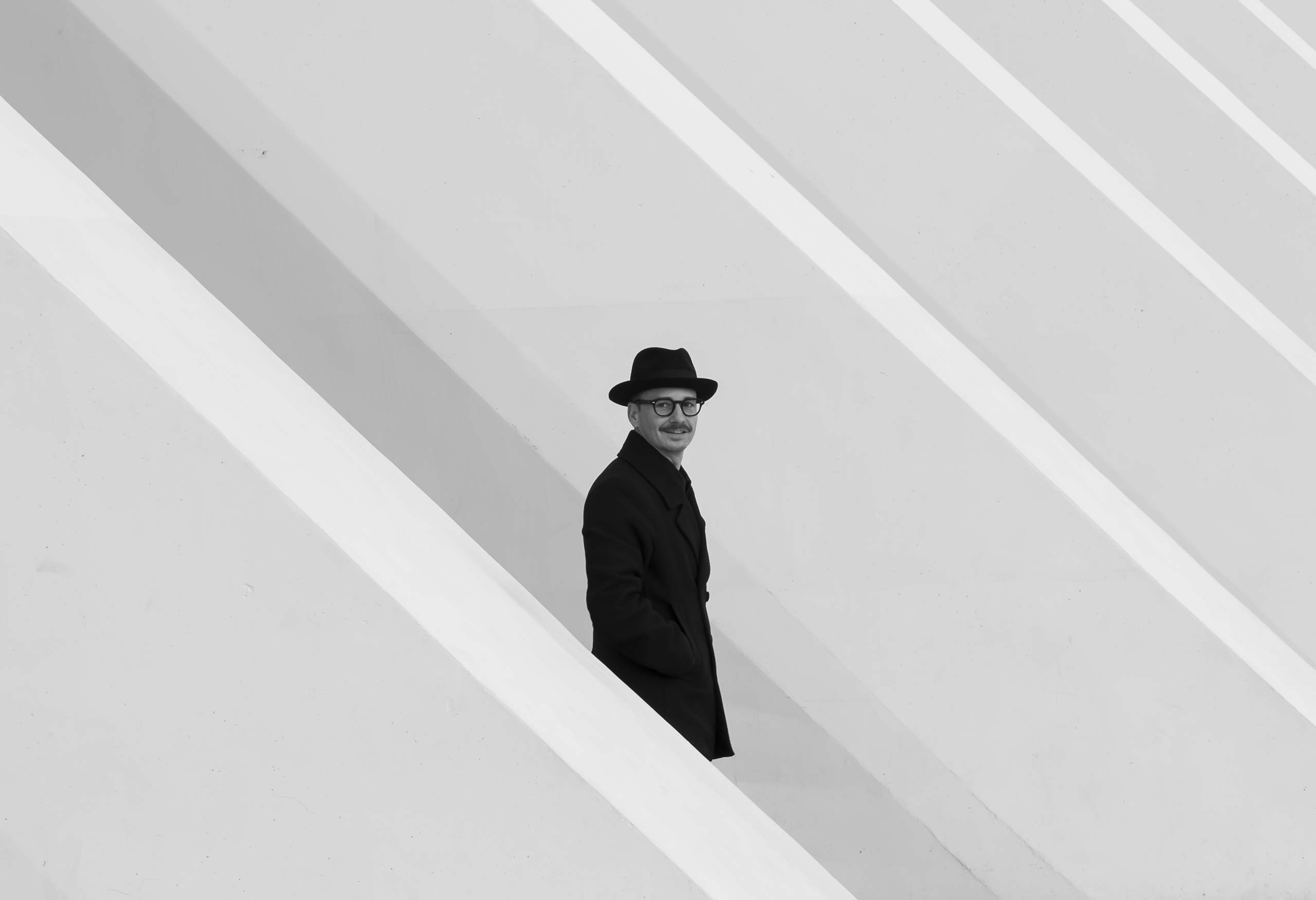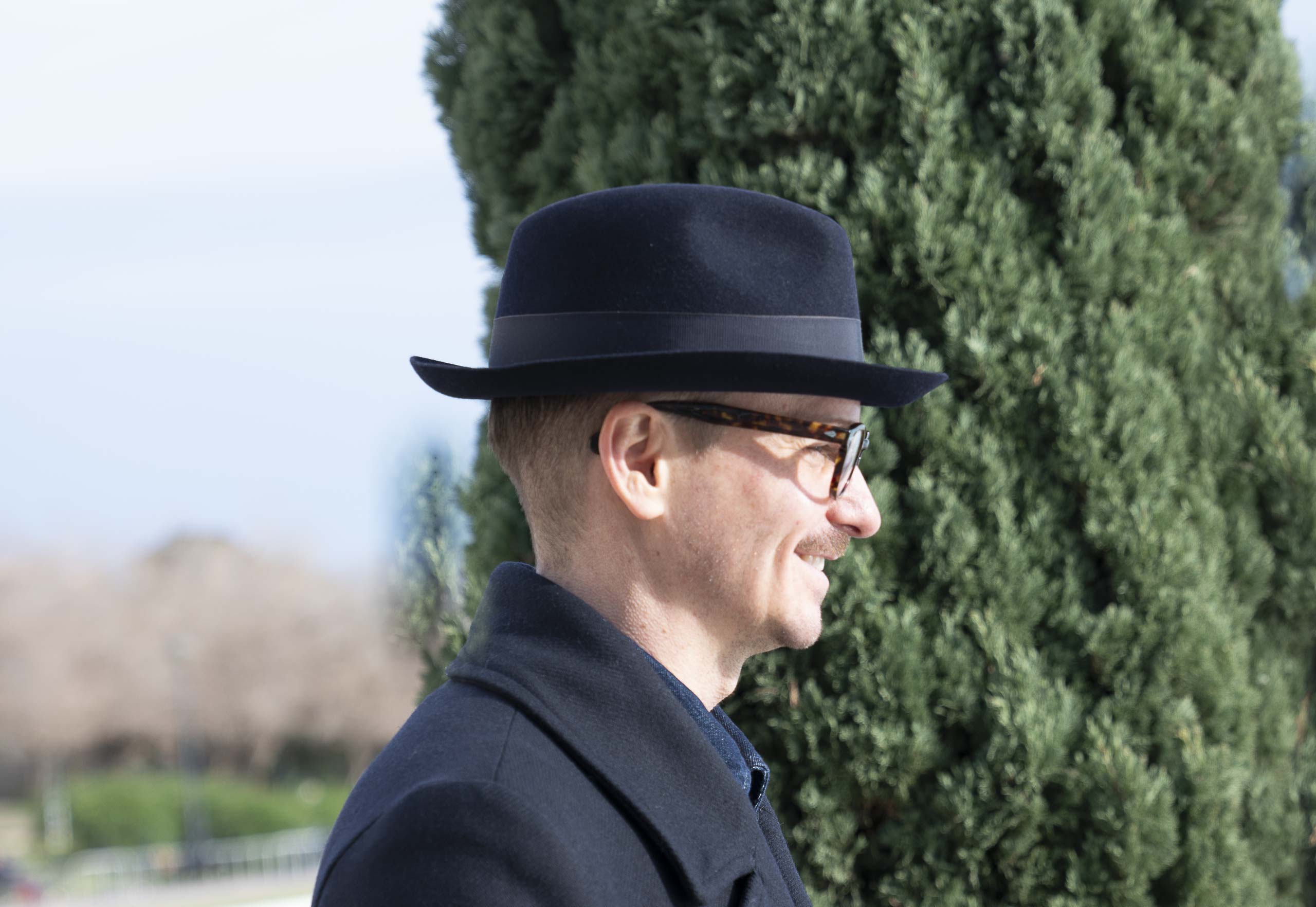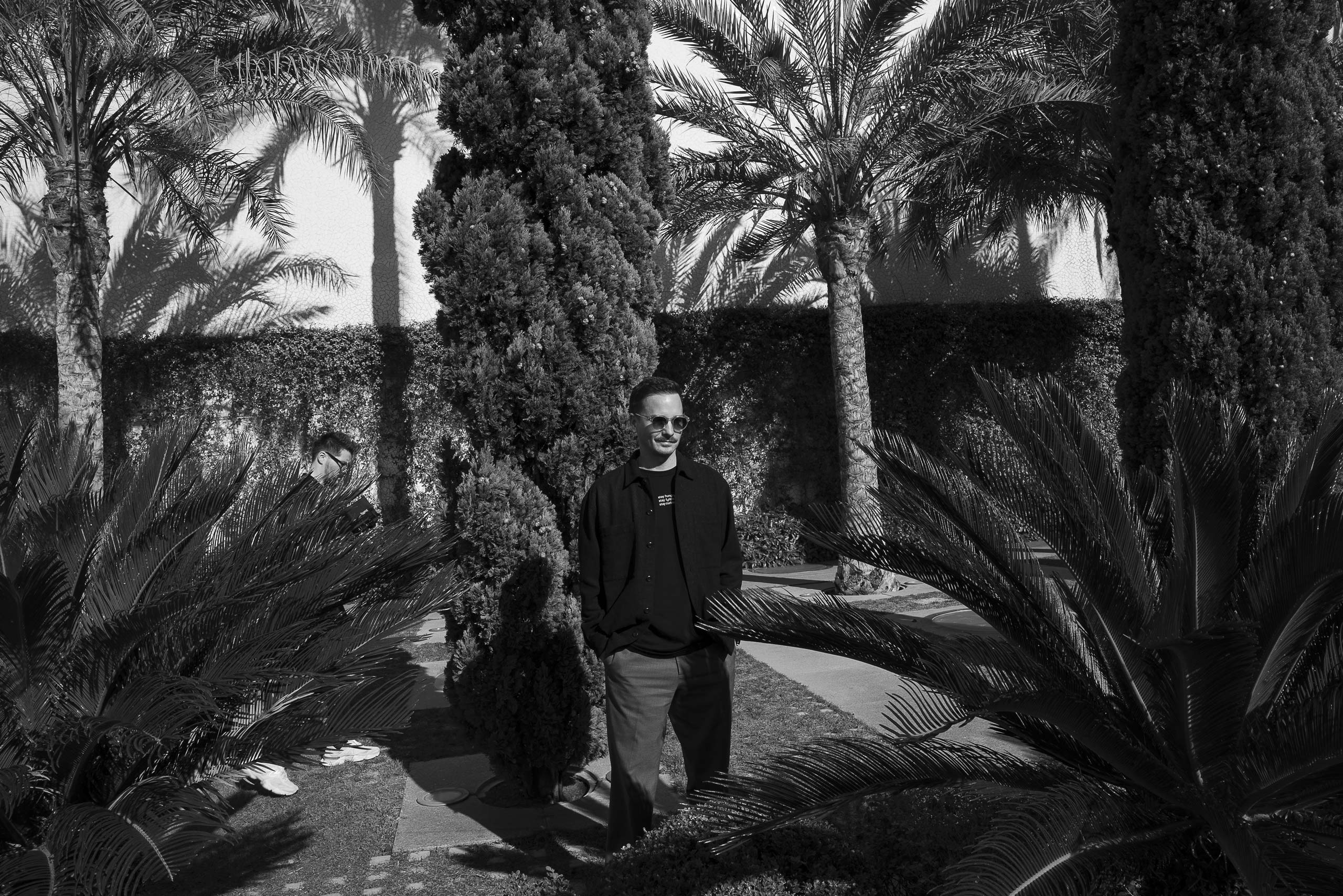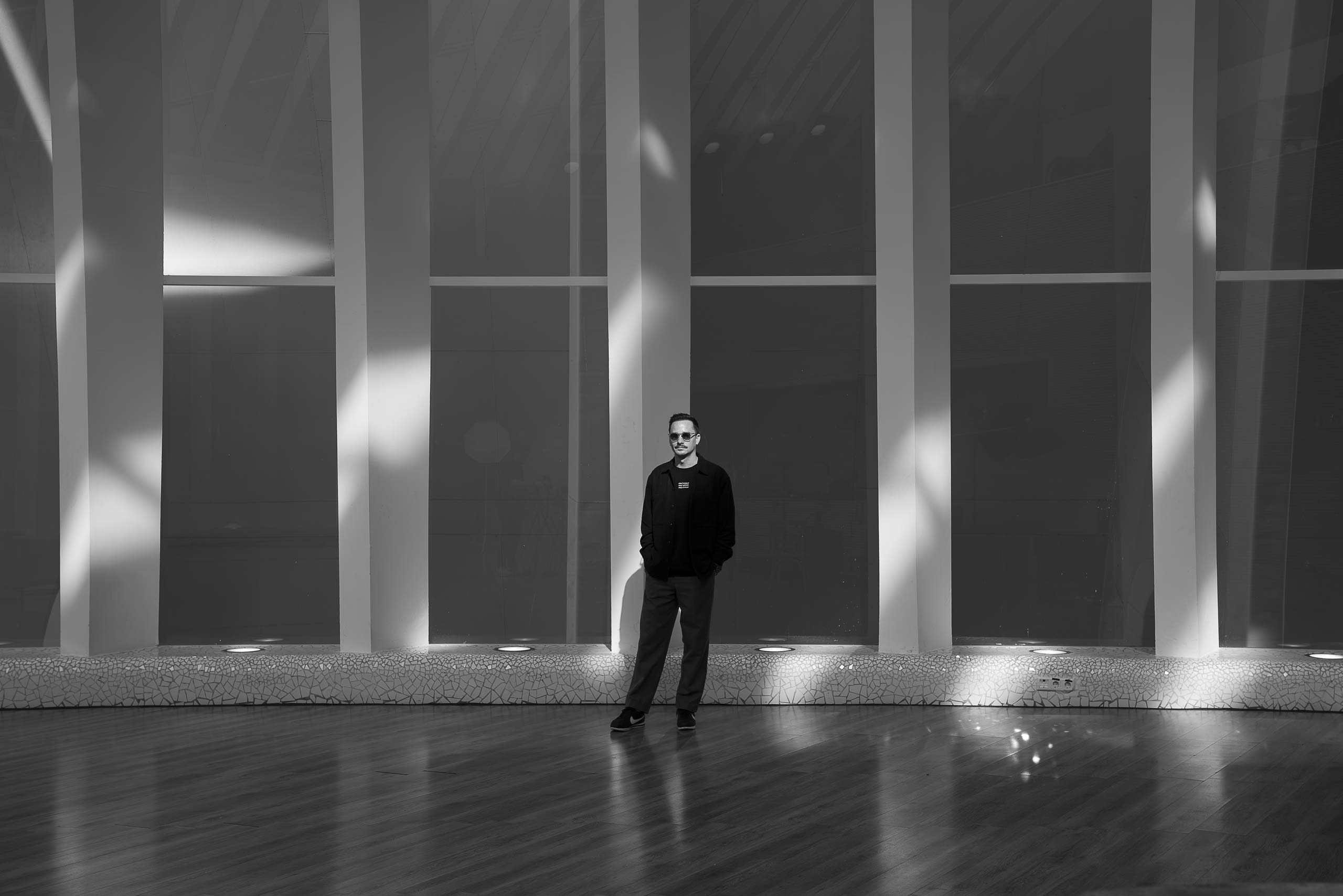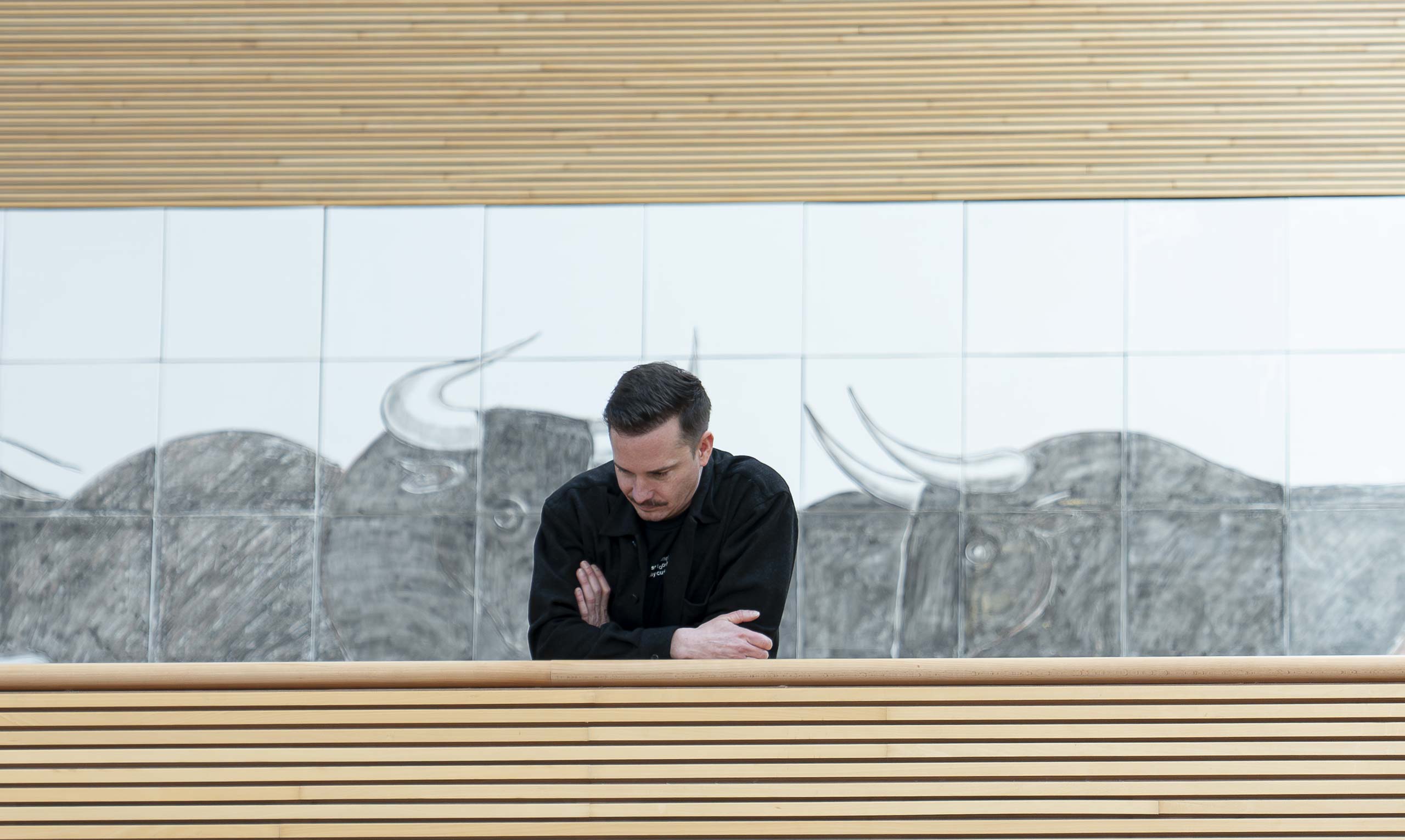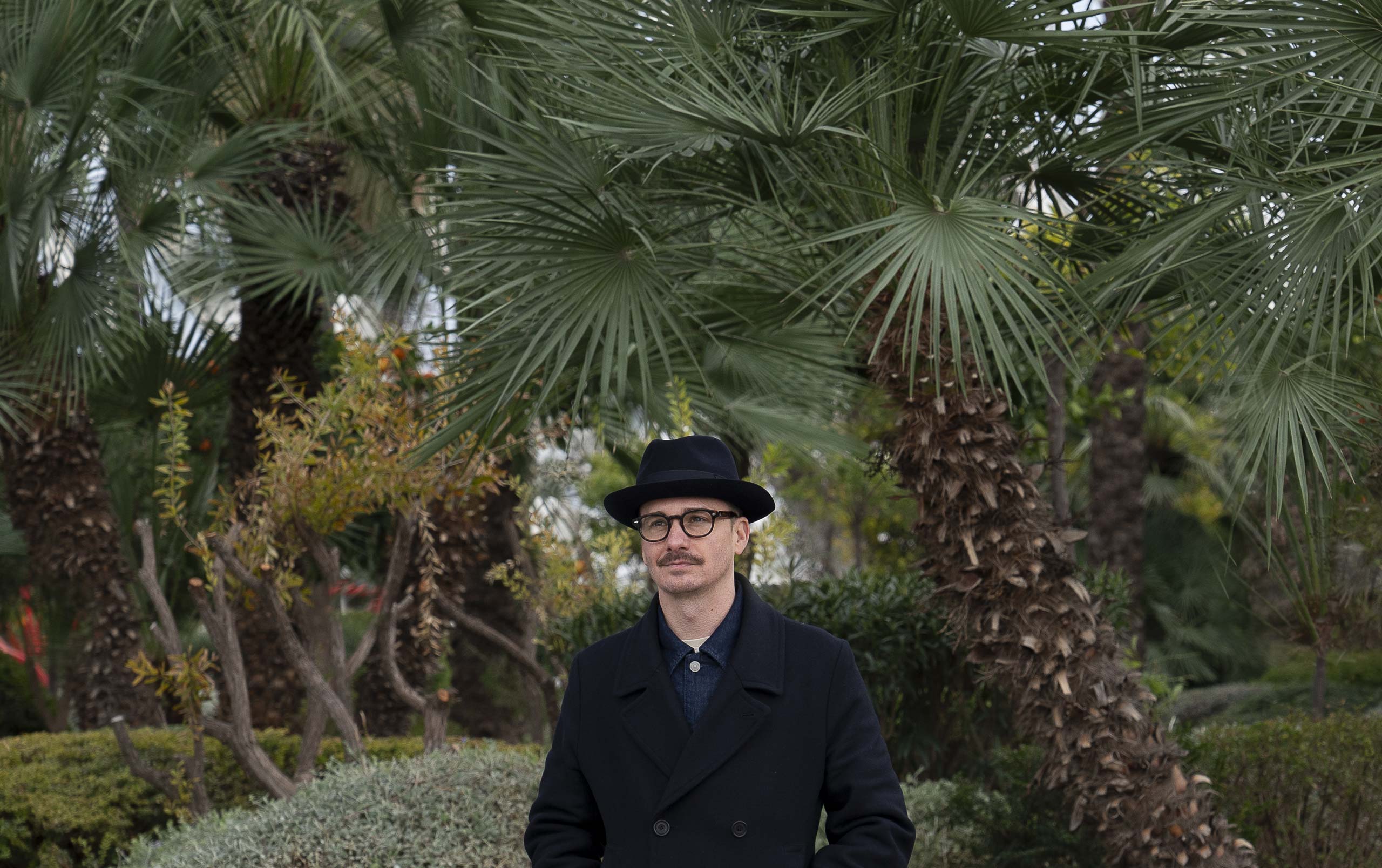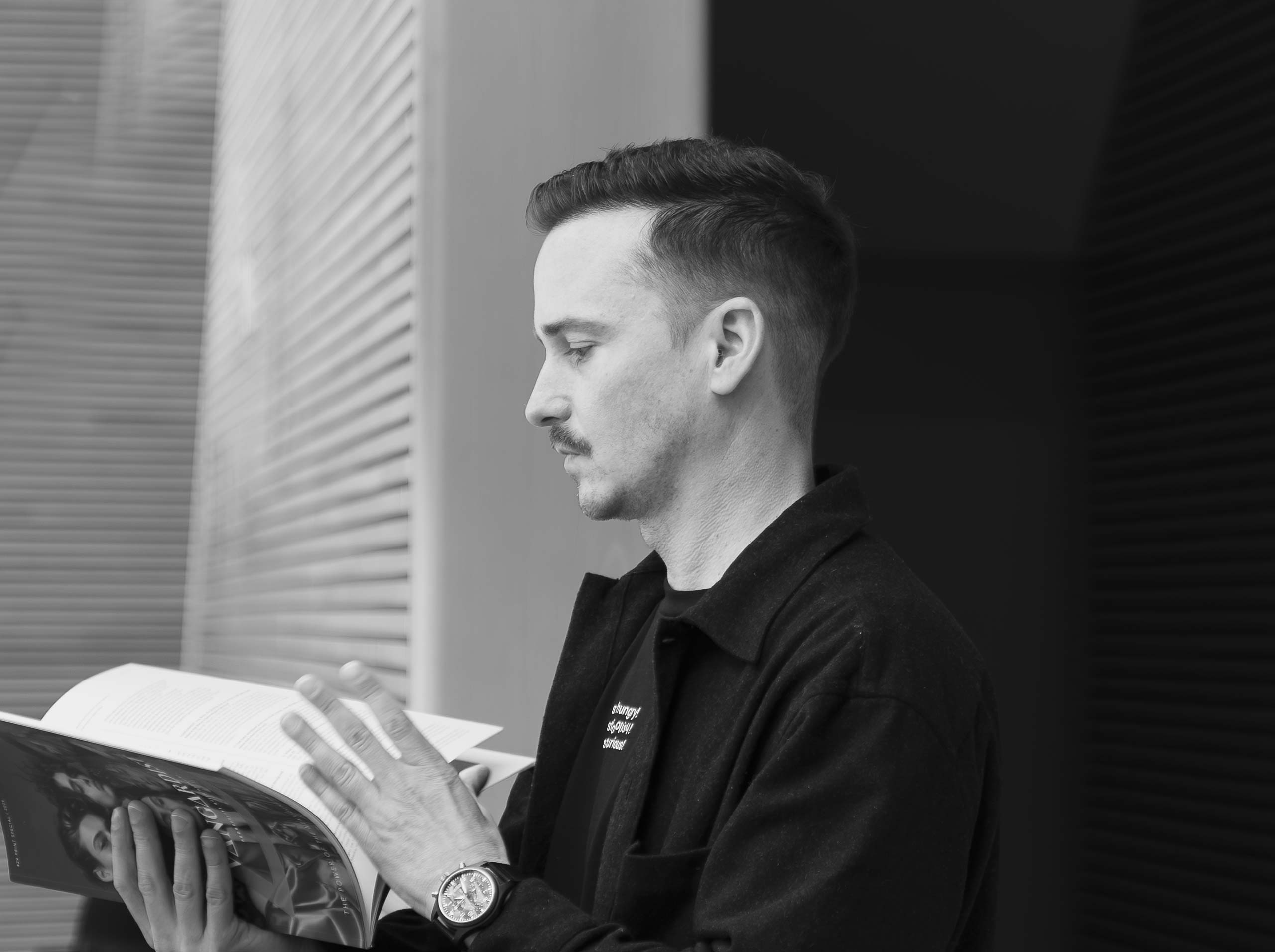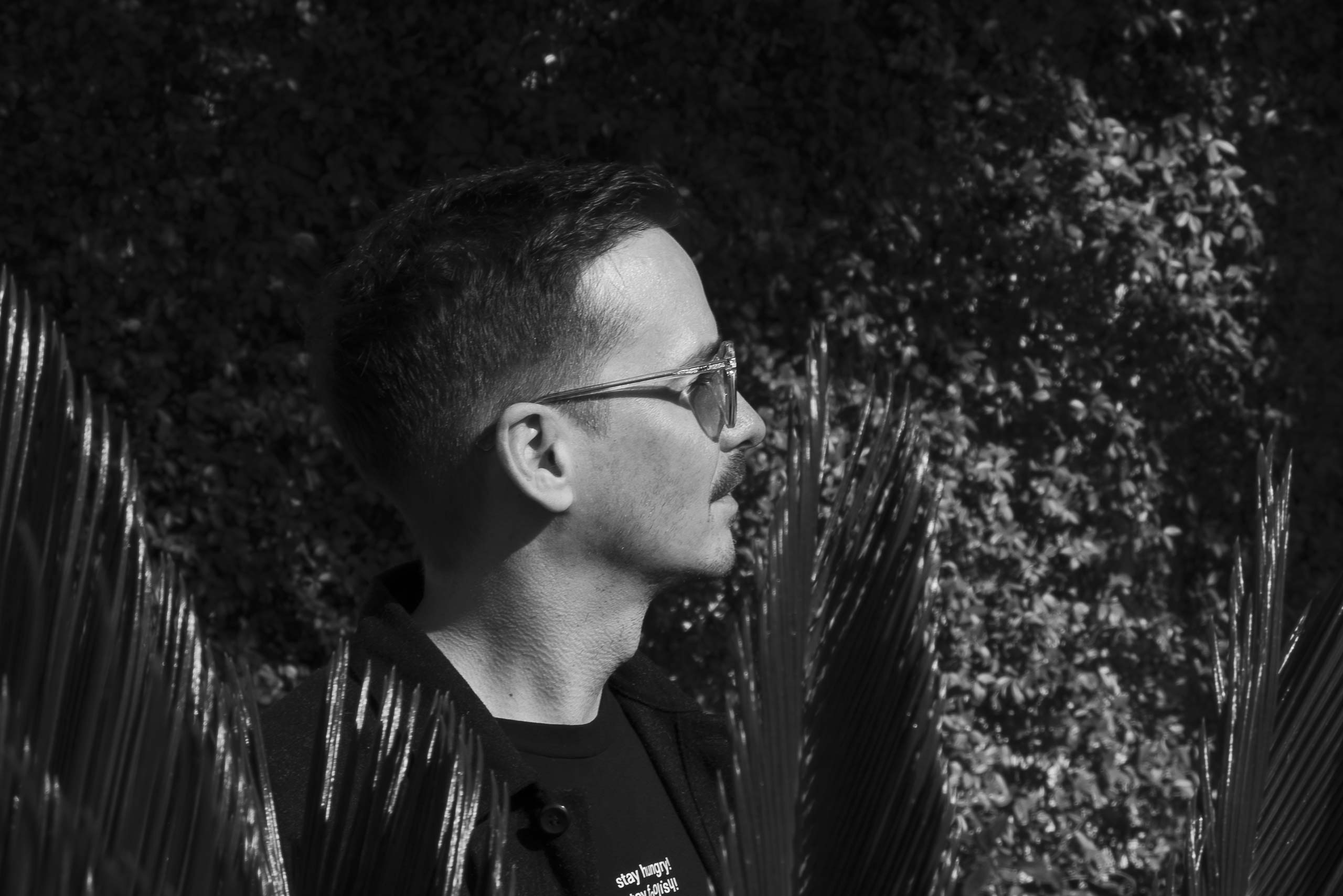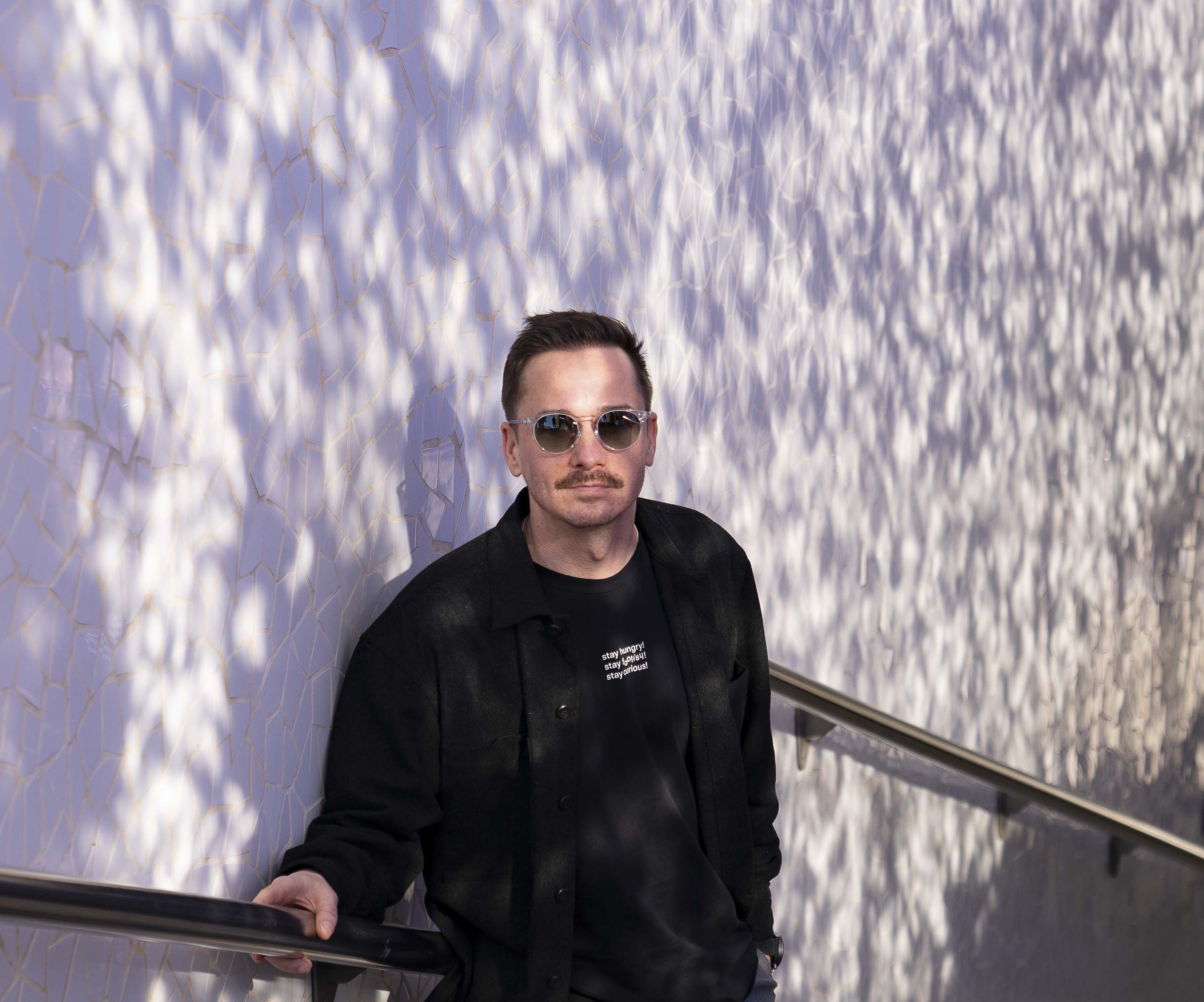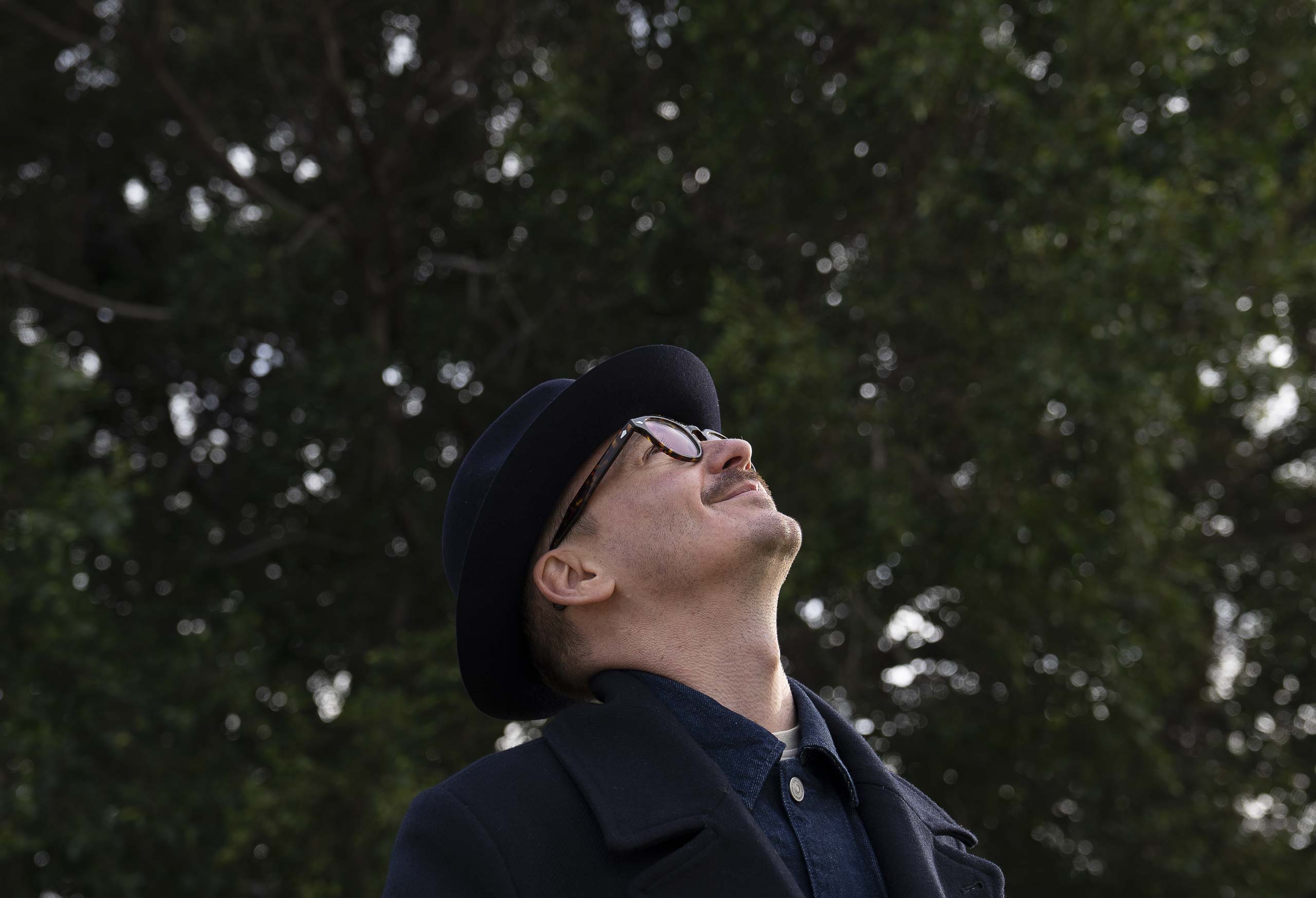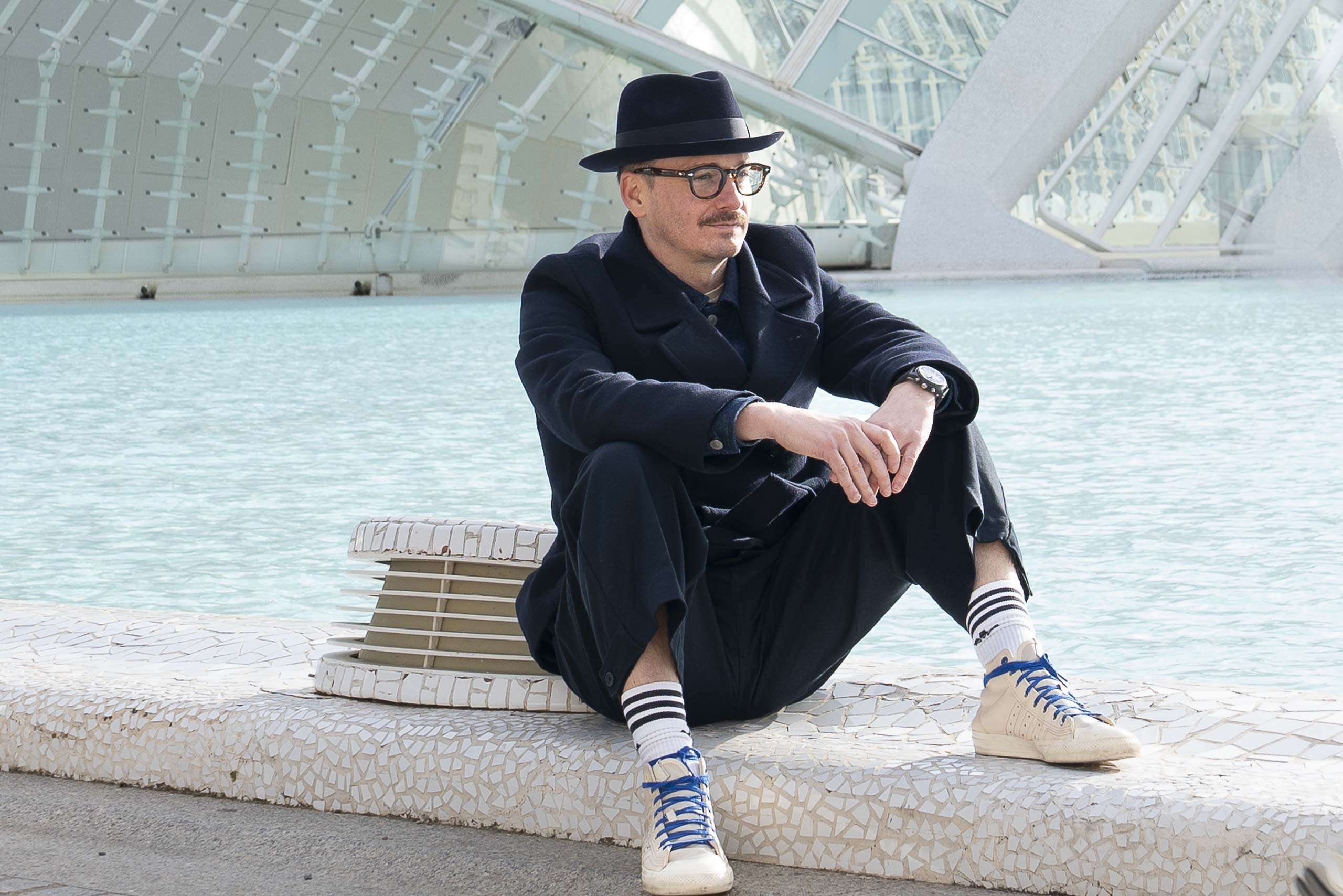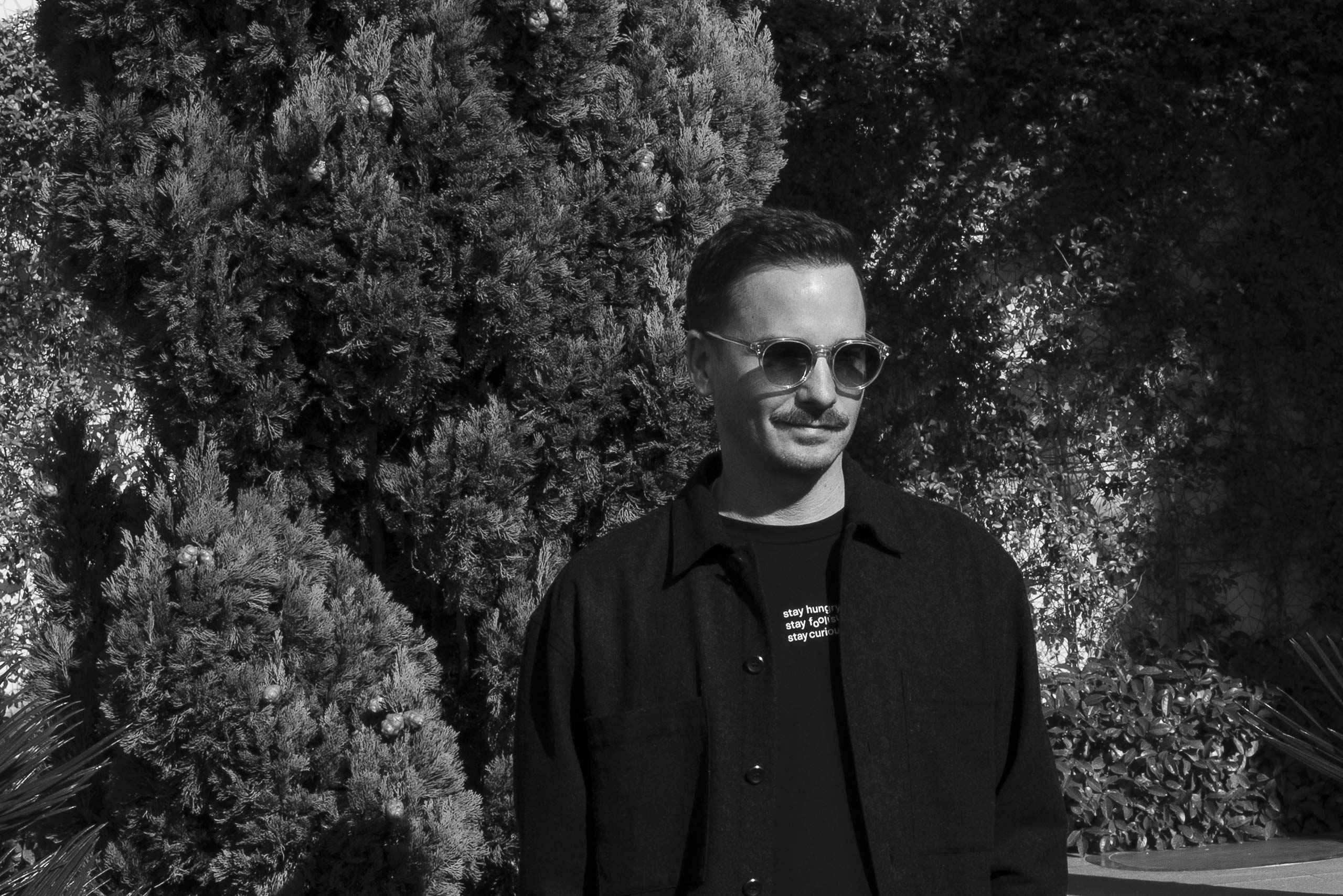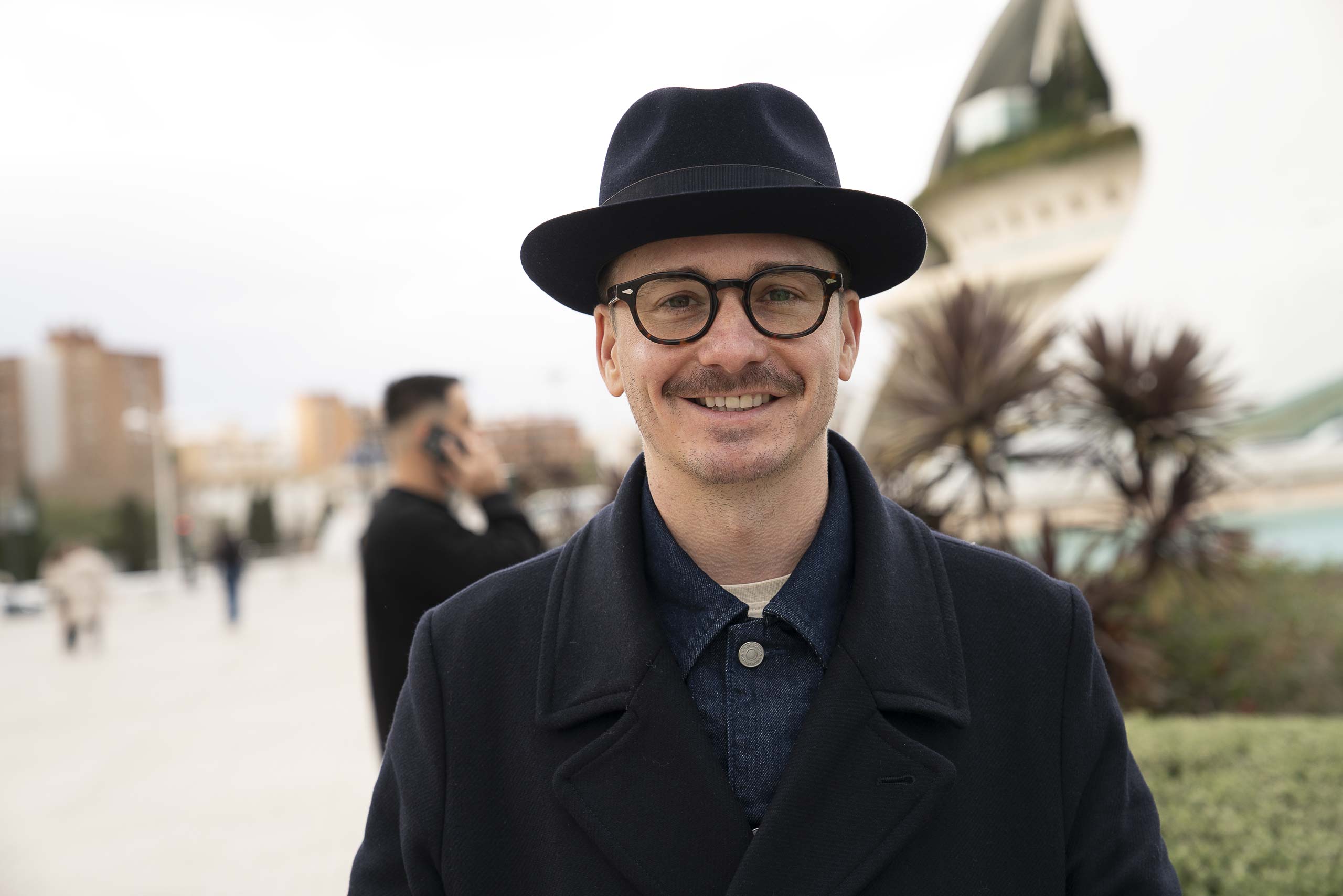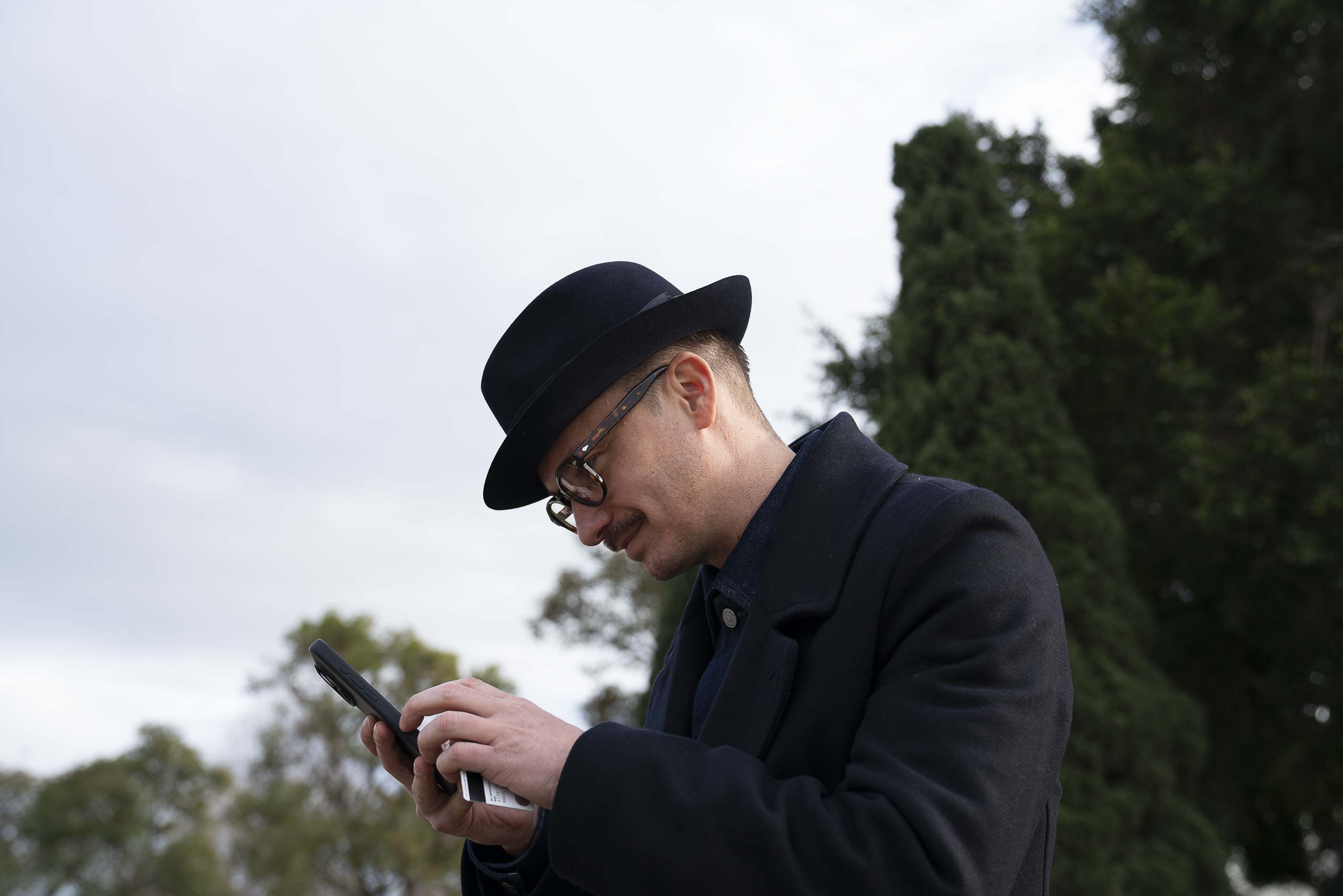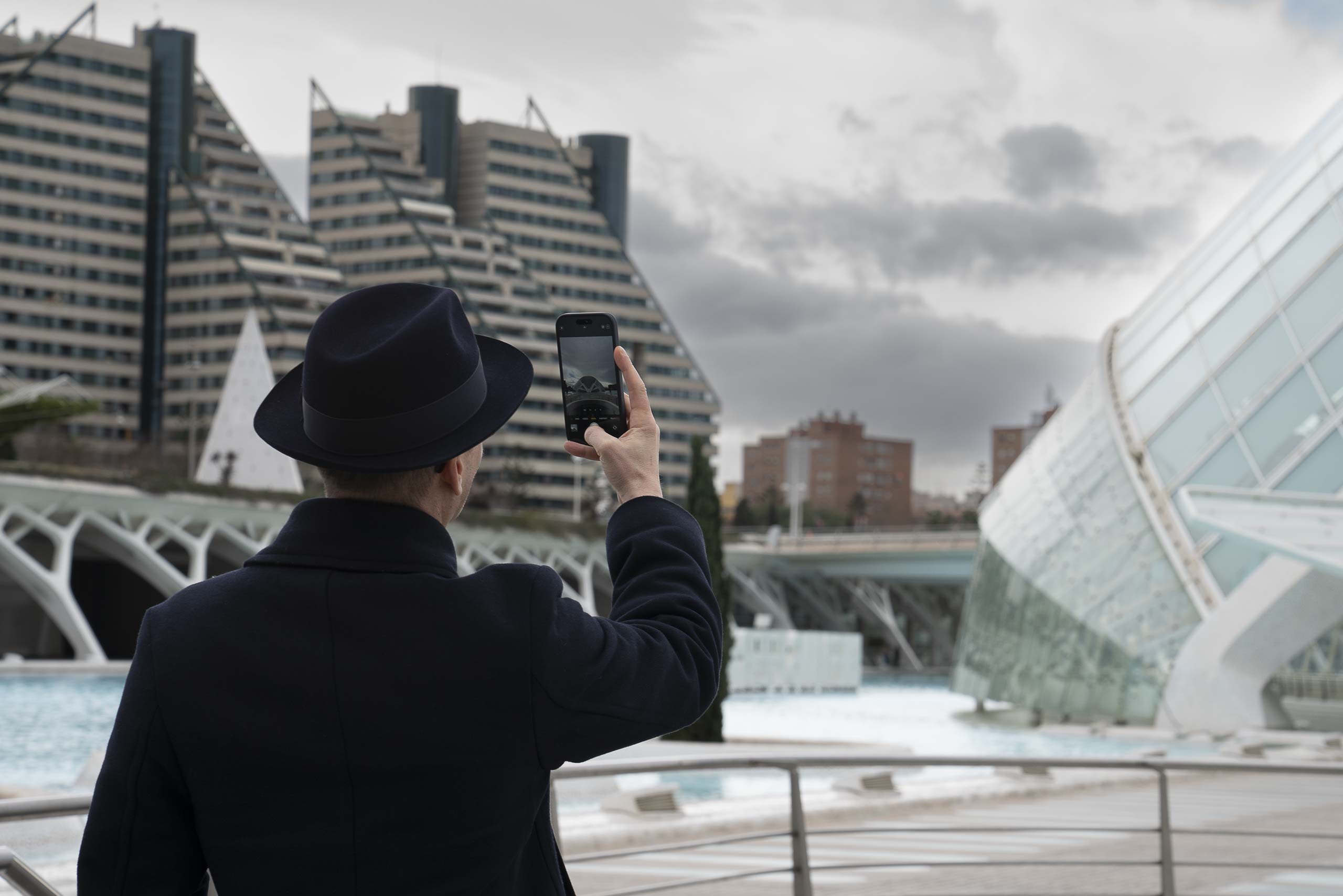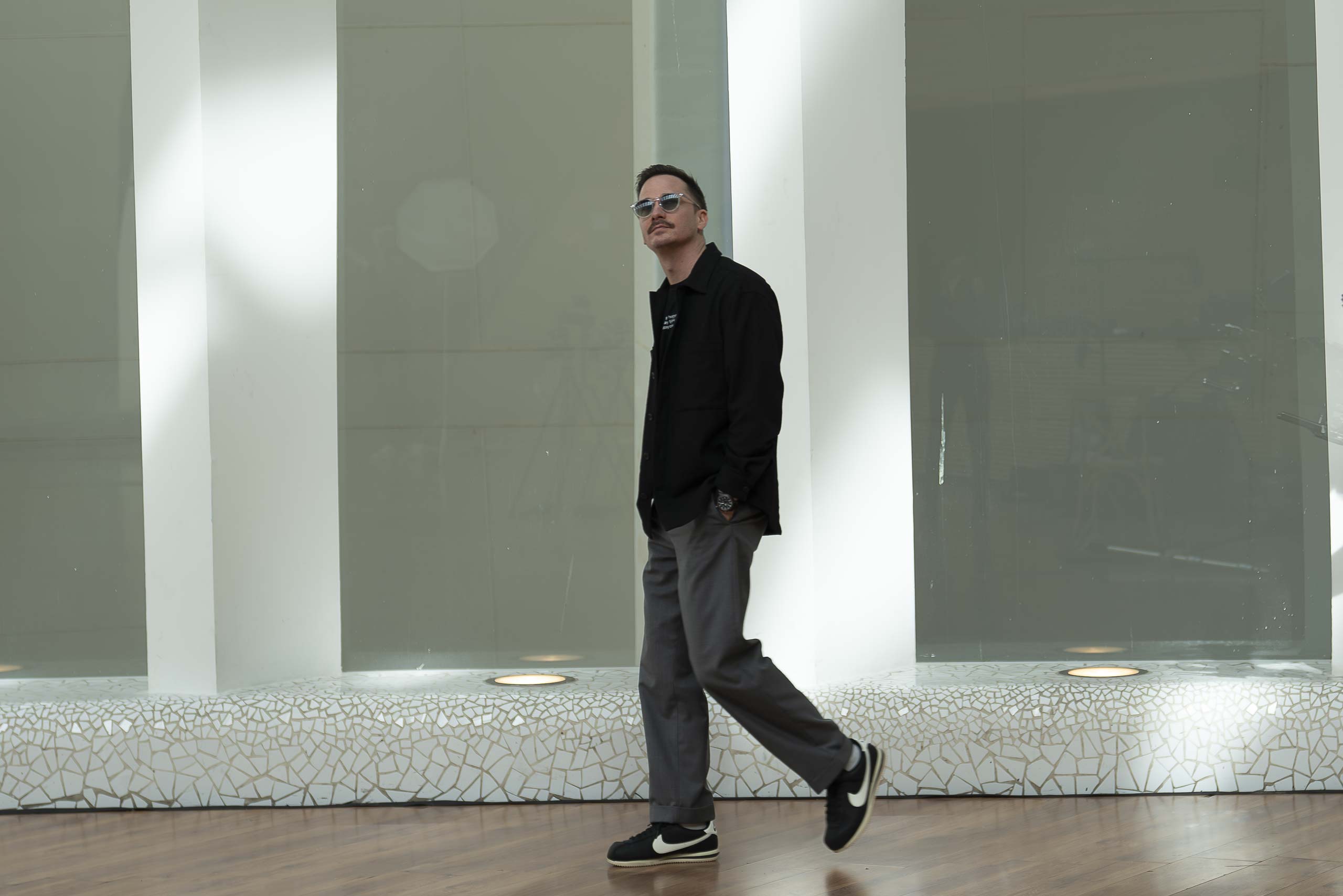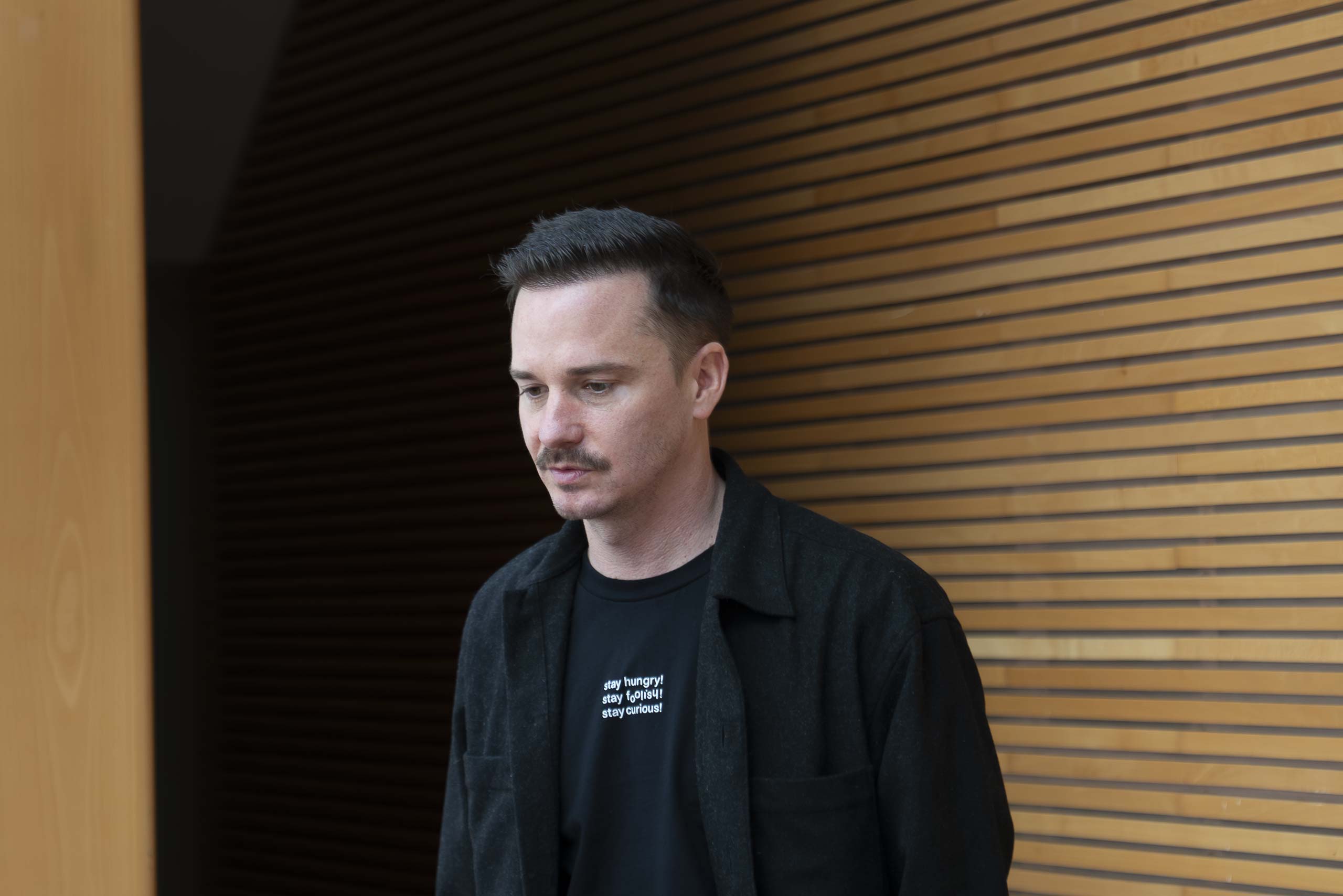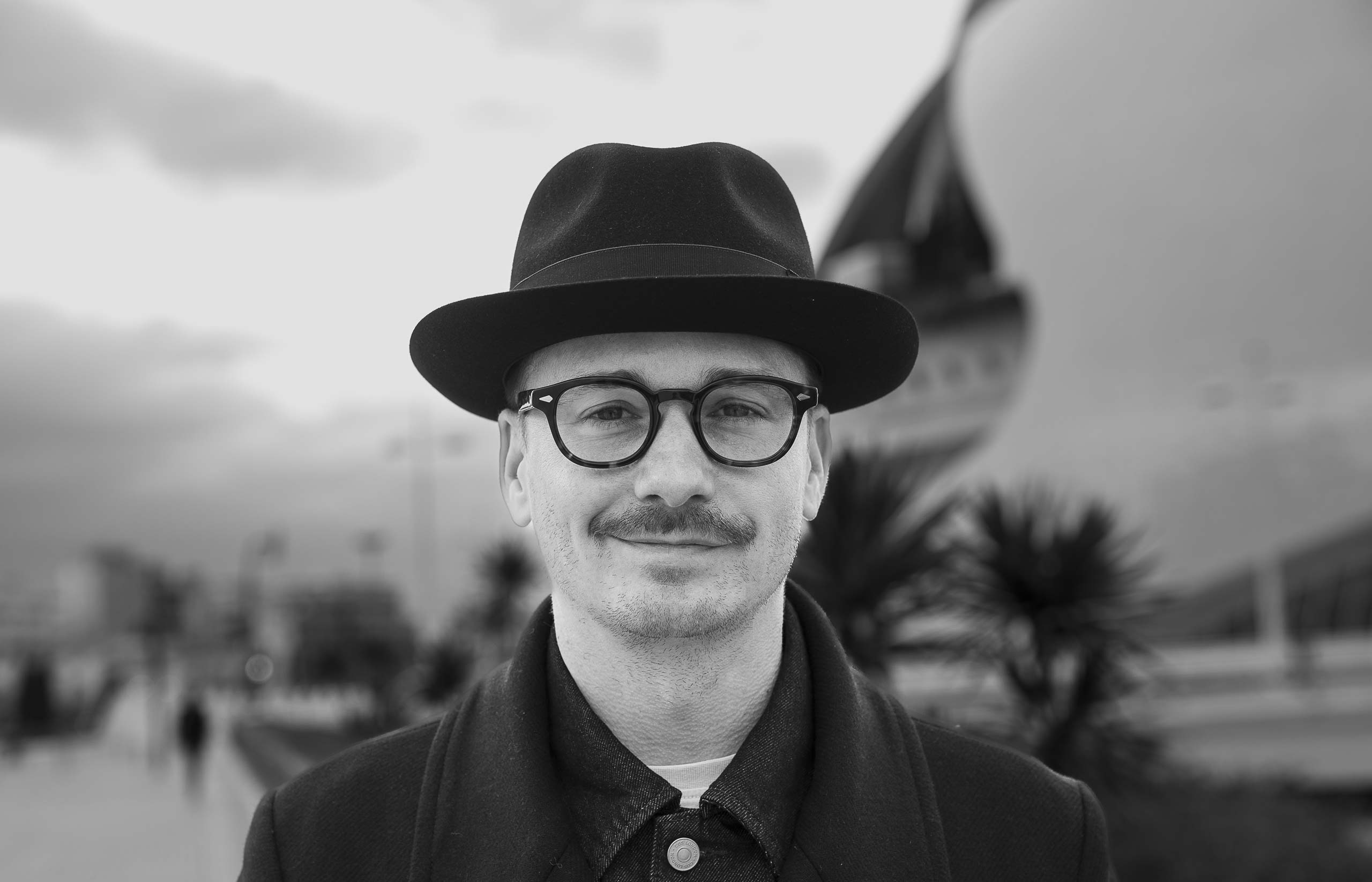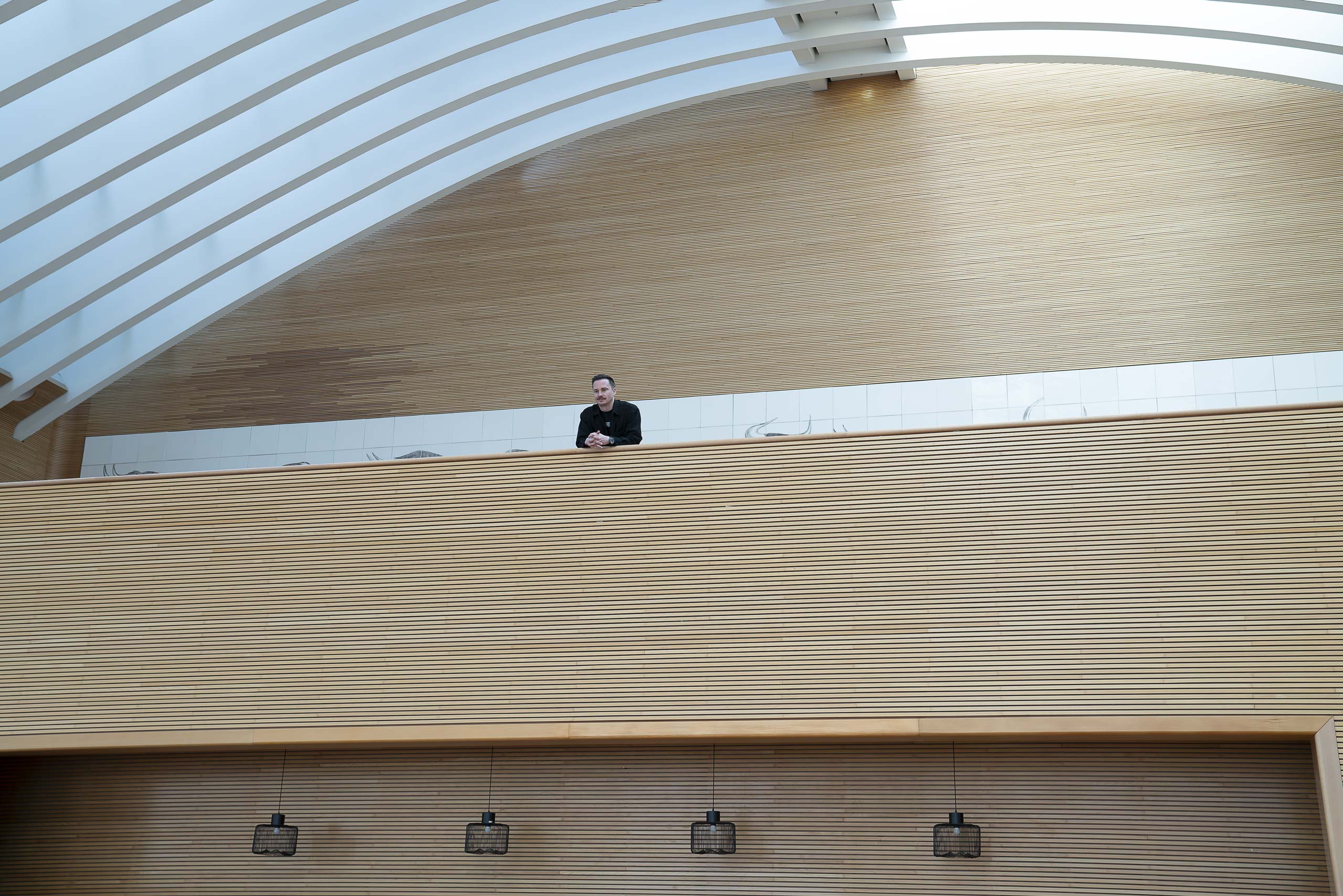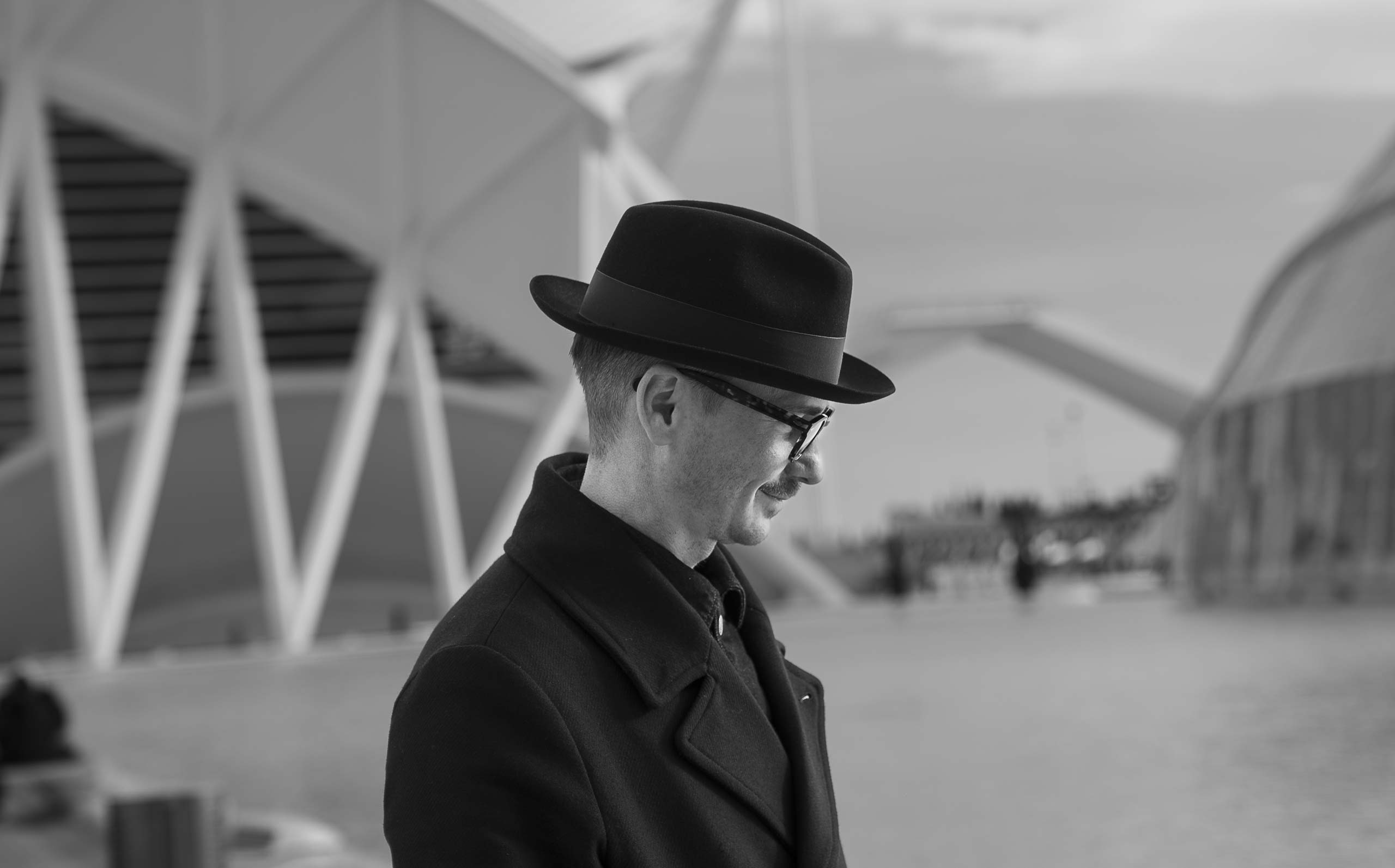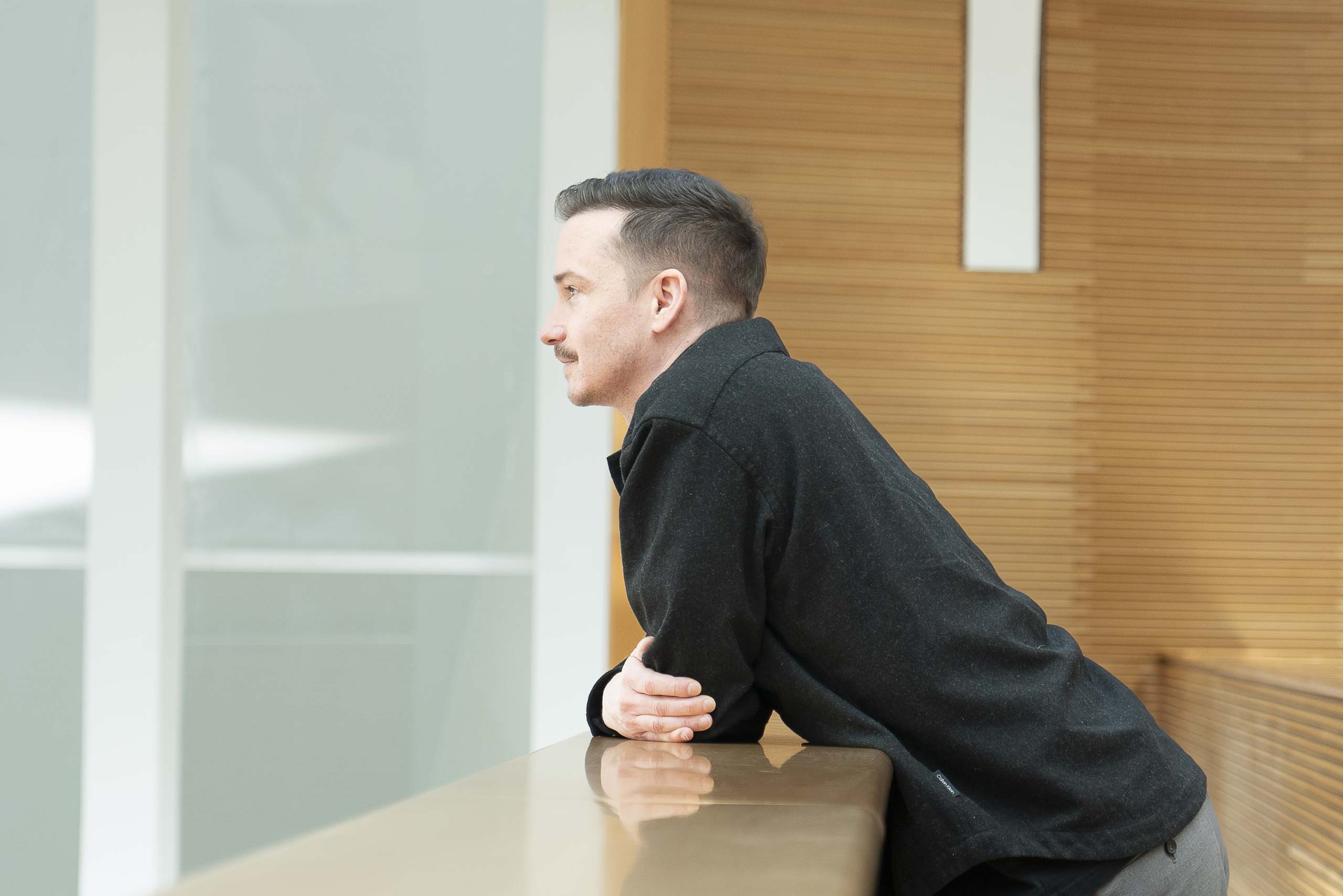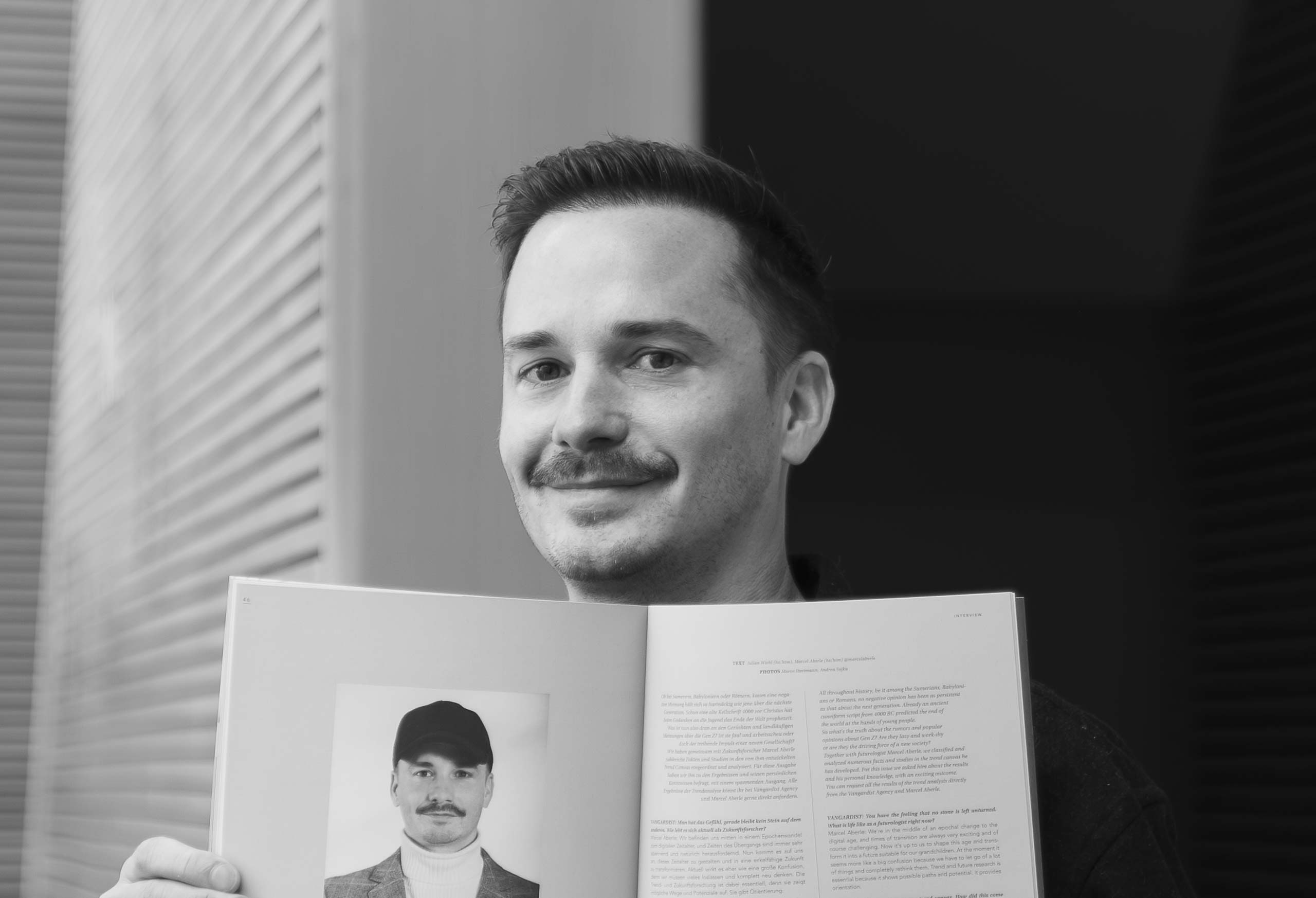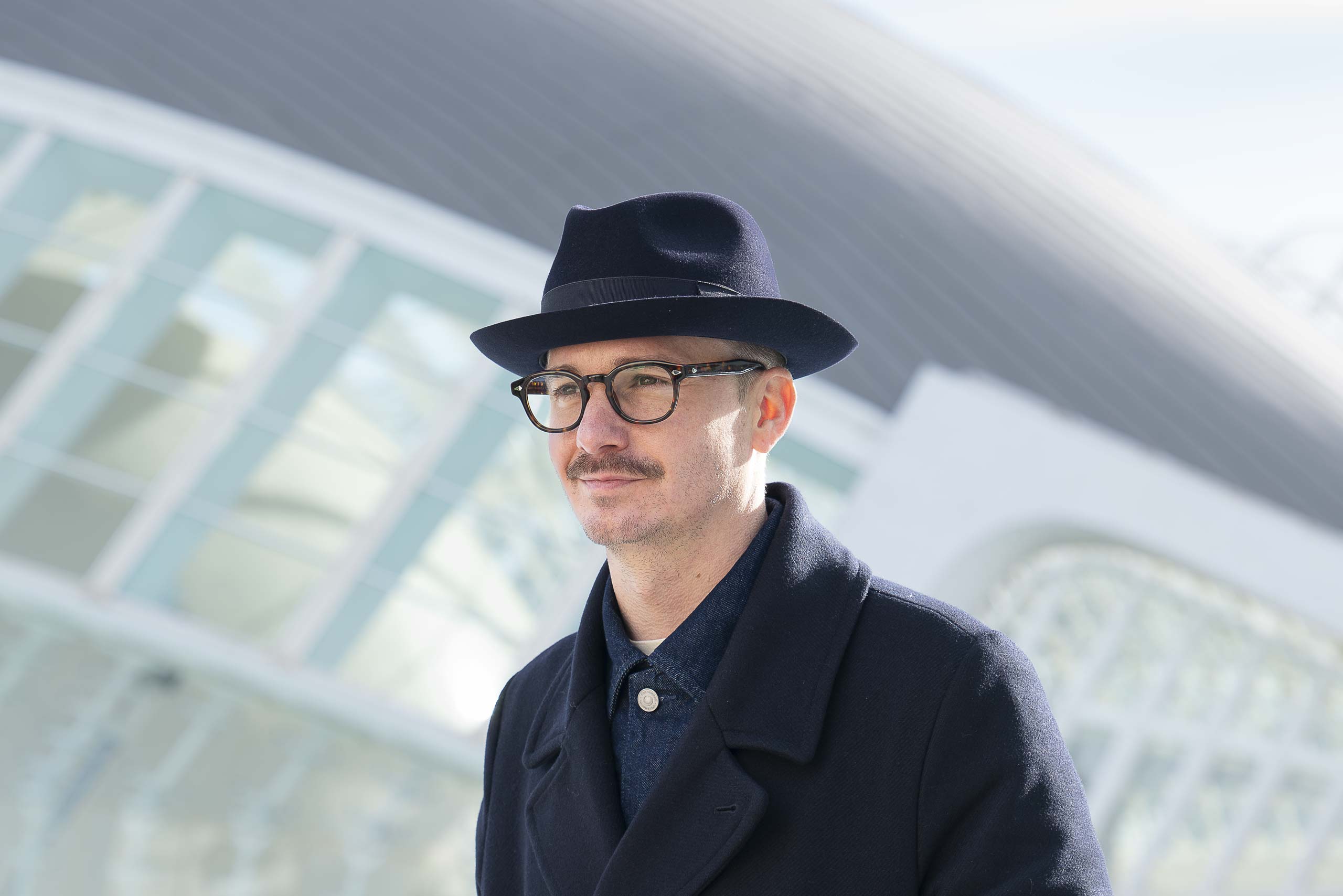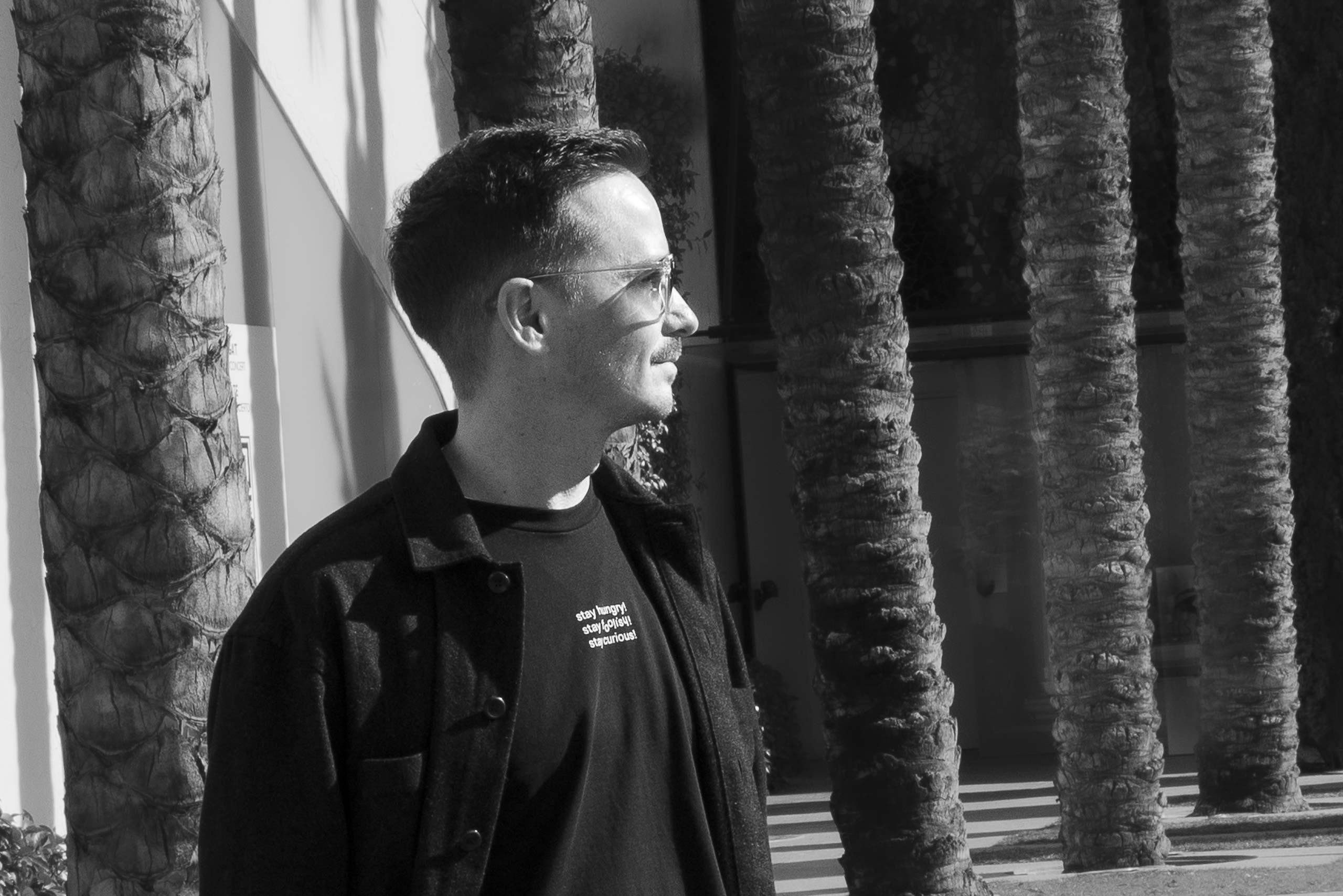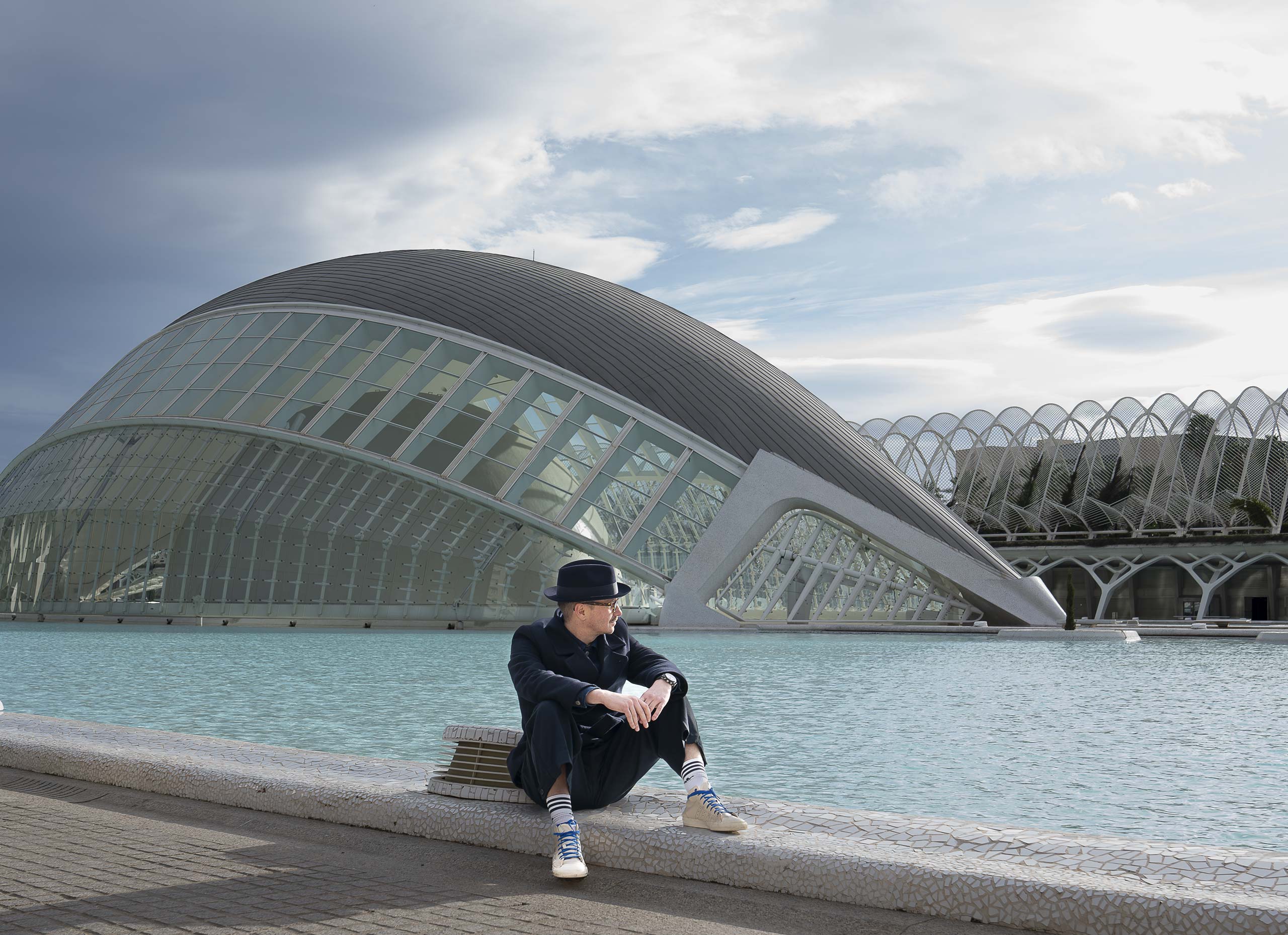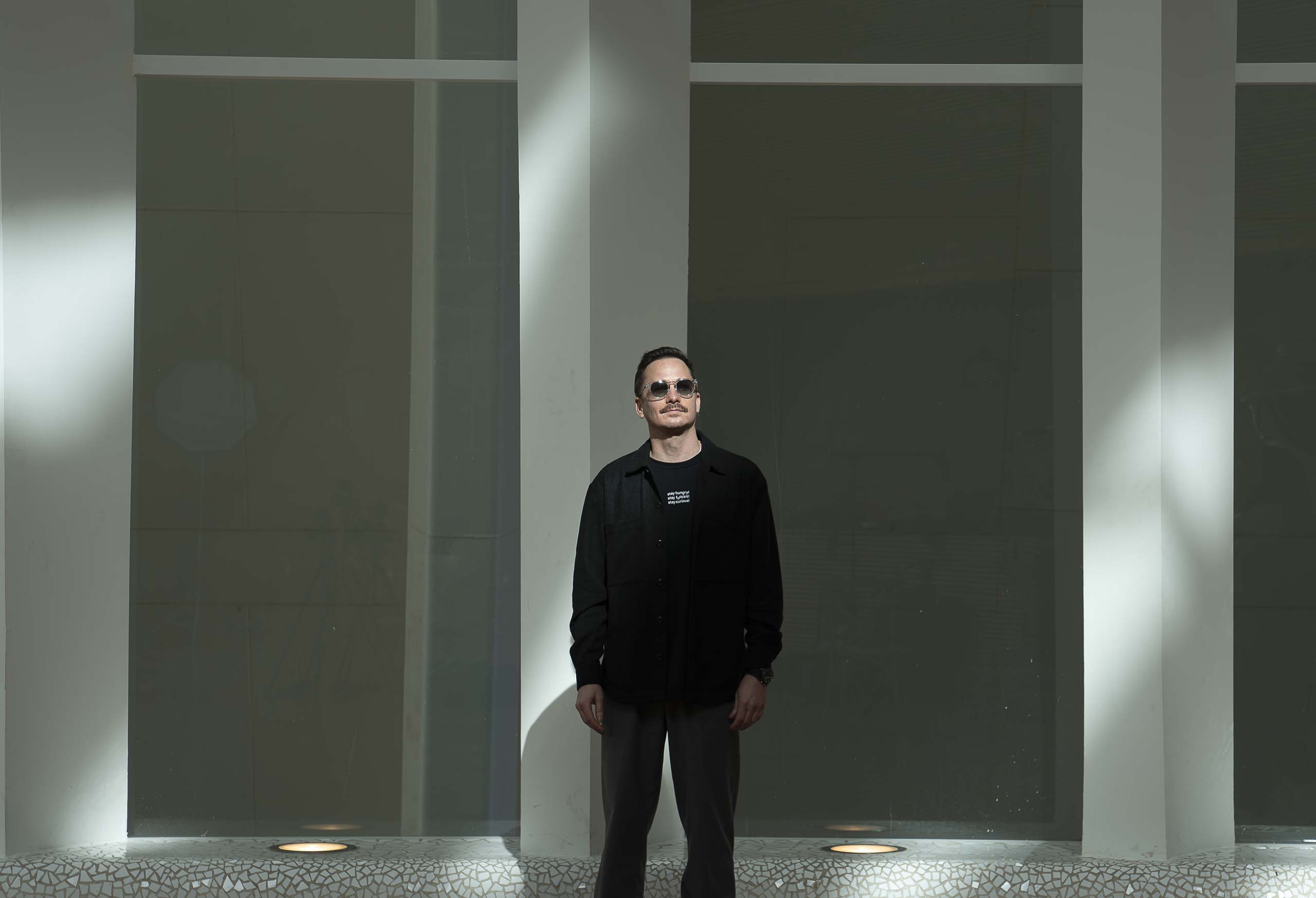Marcel Aberle
Marcel Aberle’s career is shaped by his engagement with the various dimensions of technology, innovation, and strategy.
With ten years of experience in the IT industry, the start-up founder is driven by a deep fascination for the trends of our time that are significantly transforming our economy and society.
The multiple award-winning innovation prize winner served as Managing Director of the Zukunftsinstitut in Austria for over three years, during which he developed the Trend Canvas—a tool that helps companies analyse and leverage the impact of trends.
Marcel is a renowned keynote speaker, lecturer, and Amazon bestselling co-author, as well as a trendspotter for TrendWatching, one of the world’s leading agencies for trends and innovation. Additionally, he serves as an ambassador for the «Ministry of Curiosity and Future Enthusiasm». He combines his passion for the future and innovation on his YouTube channel Zukunft mit ohne Scharf.
Why do you think you are so successful?
I think first of all, it’s really because I do what I like. Working with people on their futures, working on innovation, inspiring people for their futures. That’s what I do in a nutshell.
As I mentioned before, I was always fascinated about trends and innovations. Plus, I was always a kind of rule breaker.
My mom told me many times, and she still does, «Please do something normal. Look how other people are doing it, do it the same way.»
In so many situations in my life, I felt, «This will be boring, I can do it differently. I can do it better, or I just don’t want to do it.»
I think that’s a really important part of everything I have done so far. And I’ve also had the privilege to work with people, with really great people. Really innovative people, inspiring people, progressive people. And this was also, all the time, very important for me, that I had people around me that support me, but also challenge me.
My friends and family are a very important source of energy, a fallback system.
For me it is really important, that I do something meaningful.
An ordinary job was never an option for me. For me it was always very important to do something to give back to society. And I want to create something that will remain, that will stay if I’m not here anymore, which will hold up my mission.
Do you have sort of a role model?
I have really had many role models in my life.
At the moment my grandma is my role model. She is 94 years old. But every time I meet her, she’s telling me how happy she is mentioning all the things she has. And that really inspires me.
With social media, all the different lives and insights, what other people have and do, you always tend to go into this comparison mode. And she is 94, and she tells me, «I’m happy, I have this, I have that.» It’s so nice, it’s very inspiring.
Other things that inspire you, for example, nature or art?
I love art, especially in my keynotes. I use a lot of art to explain development and trends.
I really love to do that because it’s such a cool tool to use in storytelling. At the end, when you make a keynote, it’s about inspiring the audience.
Of course, you have to give people information and content, but I think a lot of people underestimate the fact that about 80% is about storytelling and just 20% about the content.
Art is an amazing source to convey content, to explain things. It’s also inspiring for me in my work as well.
Nature is a big inspiration for innovation. There are a lot of innovations that are inspired by nature, for example, the circular economy. You produce something and you have leftovers, and you think about what can you do with these leftovers? Can I do something with it for my next process of production or can somebody else do it, so that everything goes into circles?
Nature is fascinating in terms of innovation.
Most people love nature to calm down and relax. I also do this. I also like to be in nature, and it really helps me to calm down.
But from an innovation point of view it’s a helpful source, nothing gets lost, everything makes sense, there is no waste, we have circles.
And I think it’s also interesting that it’s not about efficiency, it’s about effectiveness. Because everything, for example, what a tree gives away, it’s never too much or too less.
Because there’s no waste. Everything goes into circles. Everything has a connection, a purpose.
When people ask you for advice, what do you say?
I think in general it’s important to have some kind of vision of your life in the future.
A purpose, a goal, a vision, however you want to call it.
Where do I want to be in 10 years, in 20 years, what should my life look like, what should it feel like?
And based on that, you can think about ‘what do I have to do to reach that goal. What are the milestones?
What are the obstacles I will face? What are the decisions I have to make?
It’s called back casting. You have your goal; you have a picture of your future and then you go backwards.
It’s reverse engineering. It is back casting. It sounds very complicated, but the funny thing is, at the end, we do back casting every day. Every holiday is a back casting process.
You think about, «when do I have to get up? When I get into the taxi, which airlines do I take? And then what’s the final step of my journey? Do I take the car or the train? And when I do, which one at which time?»
And so it’s always this kind of back casting. Every day we do this back casting.
Why not apply it for the whole picture, for the whole future. because nowadays we feel such much uncertainty about the future, but if you do this back casting, it feels like you get access to it.
I think that’s, in general, also very important for myself to have a clear purpose. Why am I doing this? My purpose is really to ensure the progress of society and the economy, this is my purpose and will never go away.
If I mess up with a project, the next day I get up, I have my purpose and will go on with trying to secure the progress of the economy and of the society. That’s very important because from time to time you will mess up.
You will lose games. You will even lose many games in your life, but you have to stick to your purpose. This gives you a lot of energy.
I think it is fundamental. And when it comes to making decisions, love it change it or leave it. That helps me a lot in my life.
If I love someone, something or a place, it’s good. If not, I try to change it.
If I can’t change it, it’s time to leave.
It sounds easier than it is in real life. But for me it was always a very good anchor, a good compass.
And the third thing, which I really try to implement in my life and reconsider many times are Michael Lehofer’s (Editor’s Note: management coach and a psychologist), ideas. He said:
«The most important time for me is always the time now.
The most important person is always the one who is sitting in front of me. That person gets all my attention. Because then you are really in the moment, and then you can have really good conversations.
The most important thing to do is to take care.»
It is all about caring. If something is not working like you want to work it, take care of it. If you have a problem with your health, take care of it. If you have a goal, take care of it.
These three principles help me a lot in my daily work.
This brings us to «What do you enjoy most in your life?»
What I enjoy most in my life is playing.
Board games, video games, soccer, spending time with friends and family, and just playing or even watching a play.
That’s what I really enjoy. And because of that, I also try to bring this playfulness into my work. Especially when it comes to innovation, this playfulness is very helpful to start being creative.
Do you have a utopia?
I’m not sure if it’s a utopia, but I think we should have the subject «Futures» as a topic at school.
It will feel like biology. We need the subject, it’s very important.
We have to thematize and incorporate the futures, we need the skills to build our futures.
«I think that’s, in general, also very important for myself to have a clear purpose. Why am I doing this? My purpose is really to ensure the progress of society and the economy, this is my purpose and will never go away. You will lose games. You will even lose many games in your life, but you have to stick to your purpose. This gives you a lot of energy.»
Watch the full interview with Marcel Aberle
The book: Back to Futures
We talk about futures. It’s very interesting because when we talk about it in German we say «Zukunft» singular. But in English you say futures literacy.
So, and I think that’s very important when it comes to the literacy about the future, that there are futures. There’s not just one future.
The future is a space of possibilities.
I think it’s very important to understand, that you are the creator of your own future.
You are the one who is deciding on all the trends out there, on the crisis, on the challenges. You decide how you react to these trends. And this is how you create your future as a person, as an individual, but also as an organisation.
And nowadays, I mean, you only have just to read the media, you talk to people, you look at the statistics. It’s like the future is not a space of hope anymore.
There are so many negative aspects: the climate change, the wars and robotics, especially human robotics that steal our jobs and so on.
It’s not a space of hope anymore. And that’s a difficult situation. It’s very difficult because we humans need a compelling future. We need a clear, positive picture of the future. When we get up in the morning and we know that’s what we’re facing. I go to work or whatever you do, but I do it to follow my purpose.
I do it for that future, I have a reason, I have a purpose. And if we just have bad pictures of the future, this really influences us in a bad way. It leads to protectionism; it leads to depression. It’s really a bad foundation for creating the future. It’s super important to step up to make sure I am the creator. I decide how to react to these trends and challenges as an individual or as an organisation.
How do we do that? How do we create the futures? This is a very important point due to the current situation we wrote about in this book. I wrote it together with Markus Iofcea.
In German it’s called “Zurück zur Zukunft”. I think the English translation would be more like “back to futures” because we have to work on the futures.
At the moment, for everybody, the future looks so bad that everybody wants to avoid a discussion.
But especially now we have to face it. And we have to think about what kind of trends are there? What kind of possible scenarios are there? And what is our picture of the future? Where do we want to go to? We really have to make an effort into working on the futures, because otherwise we feel like we’re standing in a tunnel and a train is coming, but we have no part in the play.
Sometimes I have the feeling, that the future is strongly influenced by the USA and China, and we’re just standing there and are scared, extremely scared. It’s very important to get out of this mood. There are so many tools and methods that we can work with to learn how we can build scenarios, how we can analyse trends, how we can analyse the impact of trends, and so on. And that’s super important for me and for Markus, and because of that, we wrote this book.
In your book you talk about curiosity, not only as a trait but even as a virtue?
Yes. Because curiosity is the basis of innovation, of stepping forward.
It’s the foundation of innovation. Think about all the people only believing in knowledge and facts.
But all the innovations out there they started with curiosity.
With questions: Why is it like this? Could it be different? Could it be better?
Curiosity is the trigger of all the progress we see out there.
Because of that, curiosity is a fundamental attitude and skill, and we really have to focus and realize how important it is.
You dedicated your book to people with dreams and to the forerunners. This is the connection you make: If you have dreams, you become a forerunner.
I think now we are in a kind of confusion phase; we do not know in which direction everything is going. There are so many transformations. Especially now, it is important that we have a vision of the future, where to go to, what it should be like.
In a phase of growth you need managers, managers to make things more efficient and organised.
But for a change of level, you need creative people, you need dreamers.
Because progress doesn’t come out of nowhere. We need these guys, and that’s why we also dedicated our book to the dreamers, to emphasize how important these guys are.
It’s very important to believe in your dreams, and here’s a book full of methods, how you can fulfil them, how you can work on them.
Future Labs
You can look at current trends, you can conduct market research, you can ask your customers, and based on that, you get a certain picture, based on the «sense of reality». From there, you think about what opportunities are there for me as an individual or as an organisation?
I think Steve Jobs said: «User experience first, technology second». You start by asking: How would our service be optimal? How would our product be perfect? Firstly, I think about what the optimal solution looks like and then I talk to the technicians and find a way to realise it. How to do the re-engineering. We use the «sense of possibilities».
When you work with the sense of possibilities, it’s very important that you have a space where you can think freely about these possibilities. And in the best-case scenario, you do not look at the current trends and the current possibilities. You just leave them behind you and really think, how would it be optimal? How would it be great? How would it be awesome? How would it be fascinating?
Because only then do you really come up with these kinds of ideas. And after that, you can do the back casting. How do we get there? And in the optimal world, you do both approaches. You look at the current trends and incremental development and continue to think about the future.
But you also have to think about the next step in this industry. What is the next system-level change? You can prepare for it, or even better, you can be the disruptor. It’s also called ambidexterity. You use both hands, incremental innovation and the next step. You improve the existing operations, but you also think about what is the next step, also regarding the sense of possibilities, this kind of future lab, this safe space. When you want to think about these kinds of things, you also need a different kind of people, with different personalities for both of these approaches.
When you do more incremental innovation, of course, you need people from your industry. They know the regulations and similar things; they are the experts. But when you talk about the sense of possibilities, you need a really diverse group of people from the arts, from different industries, and different cultures. You need this safe space where you can really think without boundaries. Because if you do this in a normal operational business environment, ideas get killed with statistics, logic, and feasibility arguments. Everyone telling you why your idea will not work. That’s why you need this future lab. It’s a safe space where you can think freely and be unhindered by arguments.
An organization is synoptic when both approaches — incremental innovation and the sense of possibilities — are used. Synoptic organisations decide what they are doing and why they are doing it. They have a strategy. And with that, they go to their innovation departments and say, «This is what we want to do. This is why we want to do it, figure out how to do it. Use AI or Apple Vision Pro, we don’t care, figure it out». Then they have a really good playground. Because nowadays, when I work with a lot of innovation managers and innovation departments, it’s like a silo in the organisation. And they’re running around buying all these cool new gadgets, thinking, «What can we do with this? What can we do with this? Maybe we can do this or maybe we could do that». And in most of these cases, this leads to nothing.
But if you do proper research, you use both approaches. And based on this, you create your strategy, a clear strategy. You know what you do, you know why you do it. Then you hand it over to your innovation department. The big problem I see in organisations at the moment is really a problem of structure. It’s really the wrong structure. There’s a saying that a system beats a good person every time. And I think that’s what we see at the moment. The big problem is a problem of structure. It’s really the wrong structure. I also realised that a lot of innovation departments are closing. I talked to different people in this area. They agreed that a lot of departments are closing. It’s sad because we need to work on the future. But on the other hand, the way they were doing it was the wrong approach. It’s not good to have a silo that is working on innovation. You really have to combine it with your strategy department. Then it becomes really powerful.
You are an ambassador of the Ministry of Curiosity
The ministry is a super nice nonprofit project.
Wolf Blotter wrote a book saying we don’t need a ministry for digitalization, we need one for Curiosity, because that’s the foundation of progress.
They do really cool stuff. They have these curiosity salons, where interesting people talk about innovations.
You get a lot of information and tools on how you can implement curiosity in your life, but also in your organization, it’s a very, very cool project.
The motto is :
stay hungry, stay foolish, stay curious.

